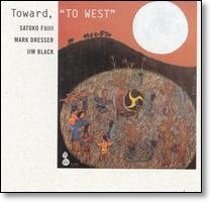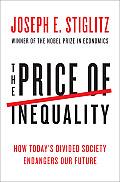Latest
2024
Apr
Mar
Feb
Jan
2023
Dec
Nov
Oct
Sep
Aug
Jul
Jun
May
Apr
Mar
Feb
Jan
2022
Dec
Nov
Oct
Sep
Aug
Jul
Jun
May
Apr
Mar
Feb
Jan
2021
Dec
Nov
Oct
Sep
Aug
Jul
Jun
May
Apr
Mar
Feb
Jan
2020
Dec
Nov
Oct
Sep
Aug
Jul
Jun
May
Apr
Mar
Feb
Jan
2019
Dec
Nov
Oct
Sep
Aug
Jul
Jun
May
Apr
Mar
Feb
Jan
2018
Dec
Nov
Oct
Sep
Aug
Jul
Jun
May
Apr
Mar
Feb
Jan
2017
Dec
Nov
Oct
Sep
Aug
Jul
Jun
May
Apr
Mar
Feb
Jan
2016
Dec
Nov
Oct
Sep
Aug
Jul
Jun
May
Apr
Mar
Feb
Jan
2015
Dec
Nov
Oct
Sep
Aug
Jul
Jun
May
Apr
Mar
Feb
Jan
2014
Dec
Nov
Oct
Sep
Aug
Jul
Jun
May
Apr
Mar
Feb
Jan
2013
Dec
Nov
Oct
Sep
Aug
Jul
Jun
May
Apr
Mar
Feb
Jan
2012
Dec
Nov
Oct
Sep
Aug
Jul
Jun
May
Apr
Mar
Feb
Jan
2011
Dec
Nov
Oct
Sep
Aug
Jul
Jun
May
Apr
Mar
Feb
Jan
2010
Dec
Nov
Oct
Sep
Aug
Jul
Jun
May
Apr
Mar
Feb
Jan
2009
Dec
Nov
Oct
Sep
Aug
Jul
Jun
May
Apr
Mar
Feb
Jan
2008
Dec
Nov
Oct
Sep
Aug
Jul
Jun
May
Apr
Mar
Feb
Jan
2007
Dec
Nov
Oct
Sep
Aug
Jul
Jun
May
Apr
Mar
Feb
Jan
2006
Dec
Nov
Oct
Sep
Aug
Jul
Jun
May
Apr
Mar
Feb
Jan
2005
Dec
Nov
Oct
Sep
Aug
Jul
Jun
May
Apr
Mar
Feb
Jan
2004
Dec
Nov
Oct
Sep
Aug
Jul
Jun
May
Apr
Mar
Feb
Jan
2003
Dec
Nov
Oct
Sep
Aug
Jul
Jun
May
Apr
Mar
Feb
Jan
2002
Dec
Nov
Oct
Sep
Aug
Jul
Jun
May
Apr
Mar
Feb
Jan
2001
Dec
Oct
Sep
Aug
Jul
Jun
May
Apr
Mar
Feb
Wednesday, April 30, 2014
Rockcritics Interview

|
I've been corresponding recently with Scott Woods, the proprietor of the excellent Rockcritics.com website, and one fruit of that was that he asked me to do an interview (link here). The site has been rather spotty on reviews recently, but back around 2000-02 they interviewed a lot of people, a veritable Who's Who of Rock Crit, and I'm pleased to add my name to that list. I'm reminded now of one bit that I didn't include in the interview. One of the most important books that I ever read, back before I went to college, was John A. Garraty's marvelous Interpreting American History: Conversations With Historians (1970, Macmillan; I have the two-volume paperback edition, but recall a single-volume hardcover). Garraty interviewed several dozen eminent historians, and nearly every single one managed to distill more insight into American history than they did in their many books. Or so I thought, as so much of what I know about American history came from those interviews. Likewise, you can learn a whole lot about popular music perusing through the many Rockcritics.com interviews.
Scott kicked this off by sending me a list of twenty-some rather open-ended questions. I tried to answer them as Einstein advised -- as simply as possible but no simpler than necessary -- and I wound up having to expand on a couple. Scott them formatted the text, added some links, and dug up some illustrations. (The Martin Esslin book cover and Roswell Rudd CD cover are more recent editions than the ones I started with. The S-100 board is the right idea, but note that it's just the CPU board (with a Z-80 processor, two support chips I can't quite make out, an EEPROM (probably 4K), and some TTL for interfacing to the bus (50 lines on the bottom, plus 50 on the other side). The RAM was on a second board -- I had 64K of SRAM that could run at 4MHz with no wait states, and the box (an Ithaca Intersystems DPS-1) housed two more S-100 cards (with a lot of expansion room), one for the floppy disc controller and the other for serial I/O. (A second box, which it sat on top of, housed two 8-inch floppy disc drives. I still have both, but none of the next three or four computers I owned. The second oldest I still have is a 1998-vintage Pentium III, still in use.)
Quite a bit about the Robert Christgau website here, including a framed quote from Christgau's own Rockcritics.com interview. Probably could have used more on music, but you can always explore my website for that. Or, after you've read the interview, you can ask me more questions and I'll try to answer the most interesting ones in a future post here. (Use the "contact" link on the left, or try the blog's awkward and mostly ignored comments feature.)
By the way, for reasons that can be drawn out of the interview, I still think of myself as a Rock Critic (and not as a music or jazz critic), even if I write mostly about jazz. Partly that's due to the way I hear the music, and partly that's my sense of how to write.
Monday, April 28, 2014
Music Week
 |
 |
 |
 |
 |
 |
 |
Music: Current count 23243 [23201] rated (+42), 554 [565] unrated (-11).
Another busy week, again mostly because I've been searching out old jazz records on Rhapsody. And since I'm only looking for albums that have already been 4-star certified by Penguin Guide, the grade curve is pretty right-shifted: 7 of 22 albums rated A-, 6 more top tier of B+, only Willem Breuker's choral music a serious disagreement.
I've checked my database and found 2265 records listed as having received Penguin Guide 4-star ratings (not counting the 98 crown records). I've rated 1266 of them (56%, plus 84 crown records, or 86%) of them, leaving unrated 999 4-stars (and 14 crowns). I haven't figured out yet how many of the unrateds are on Rhapsody -- thus far I've checked 470 and found 95 (so 20%), meaning the total is probably close to 200. That gives me something to do for quite some time now. Also, that appears to be an undercount. The database is missing at least some 4-stars from the 8th and 9th editions (I never finished the detailed charts I made of additions and deletions in previous editions).
I'll also note that among those 1266 rated albums, I have 570 (45%) at A- or higher. That compares to 33% this week, 15% last week (4/26), 33% the week before (9/27). I don't find the drop surprising. Ideally I would have bought those 4-star albums in an order that seemed most likely to please. In practice, my early picks were concentrated among the obvious artists. The following are the number of 4-star/A- or better (I'm including the crown records here) for the top artists: 19: Duke Ellington; 15: Miles Davis; 13: John Coltrane; 12: Louis Armstrong; 10: David Murray; 9: Thelonious Monk; 8: Ornette Coleman, Stan Getz, Charles Mingus, Cecil Taylor; 7: Coleman Hawkins, Art Pepper, Sonny Rollins; 6: Art Blakey, Charlie Parker, Art Tatum; 5: Benny Carter, Lee Konitz, Shelly Manne, Ben Webster. (Manne got in because Penguin Guide crowns the whole At the Blackhawk series, whereas I count each volume separately.)
Finding good new records isn't as easy, mostly because we're venturing into uncharted territory. Christgau, of course, is missed -- the crowd that coalesced as Odyshape has focused on a fairly obvious set of Christgau-friendly items (including Babyface, Drive-By Truckers, Sisyphus, Withered Hand, and, of course, Wussy) and I see their influence in first-quarter best-of lists from Matt Rice and Alfred Soto (but not Milo Miles). But surely there must be something else? I came up with two good new records this week I haven't seen anyone write on: one by Bobby Avey (with a lot of help from Miguel Zenón), and the other by Jenny Scheinman (as a singer-songwriter, taking a break from her reign as the world's finest jazz violinist).
My Rhapsody Streamnotes file is currently about as deep as the last one I posted. I should publish it this week, but maybe not until May comes around. Right now it's long on old music and short on new music, so if I can think of new music to search out I'll look at bit more there.
By the way, the latest batch of Clean Feeds arrived in the mail this week. (Also a package from NoBusiness in Lithuania today, which I haven't added to the database yet.) A few weeks ago I wrote an A- review of Eric Revis: In Memory of Things Yet Seen based on an advance, but since it's listed under Unpacking below, I thought it only fair to re-run the cover.
One bit of news to announce: I've set up a Twitter account. I'm still getting the hang of it, and could use some suggestions on how best to deal with it. Thus far I've knocked out 23 tweets: several links to my posts, plus a bunch (but not all) of the new (actually mostly old) record grades. One thing I think I should do is try to push the 140-character limit on those record grades -- in effect make them super-mini reviews, and copy those back into the lists below rather than take the bland genre bits below and tweet them. Other stats: 7 following, 14 followers. If you wish to follow, try the link above (or on the left). If that doesn't work, let me know what does.
Recommended music links:
New records rated this week:
- Kris Adams: Longing (2012=13 [2014], Jazzbird): postmodern jazz singer [cd]: B
- Marsha Ambrosius: Fvck & Love (2014, self-released, EP): slow grind and soft moans [dl]: B+(*)
- Bobby Avey: Authority Melts From Me (2012 [2014], Whirlwind): dense jungle bop [cd]: A-
- Drake Bell: Ready Steady Go! (2014, Surfdog): pseudo-Stray Cat rock and roll [r]: B-
- Mark Buselli: Untold Stories (2013 [2014], OA2): mainstream quintet [cd]: B+(**)
- Future: Honest (2014, Epic): Atlanta rapper with powerful friends [r]: B+(**)
- Paulinho Garcia: Beautiful Love (2013 [2014], Shrinktunes): guitarist-singer, from Brazil to Chicago [cd]: B+(**)
- Lisa Ferraro: Serenading the Moon (2013 [2014], Pranavasonic Universal): standards singer, super band (feat. Houston Person) [cd]: B+(***)
- Elias Haslanger: Live at the Gallery (2013 [2014], Cherrywood): Texas tenor [cd]: B+(*)
- Kelis: Food (2014, Ninja Tune): soul served cold [r]: B-
- Dominic J. Marshall Trio: Spirit Speech (2013 [2014], Origin): postbop piano trio [cd]: B+(*)
- Mike Marshall/Turtle Island Quartet: Mike Marshall & the Turtle Island Quartet (2013 [2014], Adventure Music): new age string quartet + mandolin [cd]: B
- Roy Nathanson's Sotto Voce: Complicated Day (2013 [2014], Enja/Yellow Bird): bent jazz singalongs [cd]: B+(**)
- Xavi Reija: Resolution (2013 [2014], Moonjune): electric guitar trio [cd]: B+(***)
- Jason Roebke Octet: High/Red/Center (2013 [2014], Delmark): avant Chicago digs Ellington [cd]: B+(***)
- Jenny Scheinman: The Littlest Prisoner (2013 [2014], Masterworks): violinist turned singer-songwriter [cdr]: A-
- Sara Serpa & André Matos: Primavera (2013 [2014], Circle Music): voice-guitar duets [cd]: C+
- Peter Stampfel and the Brooklyn & Lower Manhattan Banjo Squadron: Better Than Expected (2014, Don Giovanni): banjo tunings and fugged up singalongs [r]: B+(**)
- Ken Watters/Ingrid Felts: Watters/Felts Project (2013 [2014], Summit): trumpeter and singer with group [cd]: B+(***)
- David White Jazz Orchestra: The Chase (2013 [2014], Mister Shepherd): trombonist-led big band [cd]: B+(*)
- Young Thug & Bloody Jay: Black Portland (2014, self-released): underground Atlanta [dl]: B-
- ZZ Quartet: Beyond the Lines (2012 [2014], In + Out): guitar-accordion quartet [cd]: B+(**)
Recent reissues, compilations, and vault discoveries rated this week:
- The Beatles: A Jazz Tribute (2002-05 [2014], High Note): who says they're unjazzable? [cd]: B
- The Jimmy Giuffre 3 & 4: New York Concerts (1965 [2014], Elemental, 2CD): a quieter shade of free jazz [cd]: B+(***)
Old records rated this week:
- Jane Ira Bloom: The Red Quartets (1997-99 [1999], Arabesque): soprano sax quartet [r]: A-
- Don Braden Septet: After Dark (1993 [1994], Criss Cross): mainstream tenor sax [r]: B+(**)
- Willem Breuker Kollektief & Loes Luca: Deze Kant Op, Dames!/This Way, Ladies (1992 [1993], BV Haast): Dutch theatre music with dashes of Kurt Weill [r]: B+(*)
- Willem Breuker Kollektief: The Parrot (1980-95 [1996], BV Haast): avant smorgasbord or food fight? [r]: B+(**)
- Willem Breuker Kollektief/Loes Luca: Kurt Weill (1983-97 [1998], BV Haast): touchstone show tunes [r]: B+(***)
- Willem Breuker: Pslam 122 (1998, BV Haast): high church music, mostly choral [r]: B-
- Satoko Fujii/Mark Dresser/Jim Black: Toward, "To West" (1998 [2000], Enja): avant piano trio [r]: A-
- Satoko Fujii Orchestra: Jo (1998 [2000], Buzz): avant big band [r]: B+(**)
- The Stan Getz Quartet: Pure Getz (1982, Concord Jazz): sax quartet [r]: B+(***)
- Terry Gibbs: Dream Band, Vol. 6: One More Time (1959 [2002], Contemporary) [r]: A-
- Benny Goodman: Plays Eddie Sauter (1939-46 [1997], Hep): big band, focus on arranger [r]: B+(**)
- Jon Gordon: Along the Way (1997, Criss Cross): two-sax quintet [r]: B+(***)
- Wycliffe Gordon: What You Dealin' With (2001, Criss Cross): trombone-led sextet [r]: B+(***)
- Simon Goubert: Haïti (1991, Seventh): drummer-led two sax quintet [r]: A-
- Dusko Goykovich: Portrait: A 70th Birthday Celebration (1949-99 [2001], Enja): trumpet giant Festschrift [r]: A-
- Jerry Granelli UFB: Broken Circle (1996, Intuition): drummer-led two guitar quartet [r]: B+(***)
- Jerry Granelli: Music Has Its Way With Me (1999, Perimeter): hip-hop with jazz band [r]: B+(***)
- Stéphane Grappelli/Joe Pass/Niels-Henning Ørsted Pedersen: Tivoli Gardens, Copenhagen, Denmark (1979 [1990], Pablo/OJC): violin-guitar-bass trio [r]: B+(**)
- Frank Lowe: The Flam (1975 [1993], Black Saint): freewheeling tenor sax-trumpet-trombone quintet [r]: A-
- The Albert Mangelsdorff Quartet: Never Let It End (1970 [2008], MPS): avant trombone-sax quartet [r]: A-
- Albert Mangelsdorff: A Jazz Tune I Hope (1978 [2008], MPS): not-so-avant trombone-piano quartet [r]: B+(**)
- Louis Sclavis: Clarinettes (1984-85 [1985], IDA): (mostly) solo clarinet/bass clarinet [r]: B+(***)
Unpacking: Found in the mail last week:
- Rodrigo Amado: Wire Quartet (Clean Feed)
- The Nels Cline Singers: Macroscope (Mack Avenue)
- Matthieu Donarier & Albert van Veenendaal's Planetarium: The Visible Ones (Clean Feed)
- Luther Gray/Jim Hobbs/Kaethe Hostetter/Winston Braman: Lawnmower II (Clean Feed)
- Sei Miguel: Salvation Modes (Clean Feed)
- Eric Revis: In Memory of Things Yet Seen (Clean Feed)
Sunday, April 27, 2014
Weekend Roundup
Woke up this morning with the electric power down, a forced reset of my entire operating environment. Did manage to sleep through whatever the morning's storm front wrought (aside from the outage, if that was related). Meanwhile, I had a lot of this already stashed away.
Some scattered links this week:
-
Lindsay Abrams: The Koch brothers are going after solar panels:
Not as well known as the story of the Koch's opposition to wind power --
one of the few things the Kochs have been voted down on in Kansas, because
no one appreciates a good tax break more than farmers and farmers still
have some sway in Kansas, even with Republicans. The Kochs are men of
strict principle, sure, but somehow the only principles they recognize
are ones that align with their business interests, which is to say oil.
I mean, if you worry about tax breaks "picking winners in the marketplace,"
how can you miss all the tax breaks favoring oil and coal? Ask them and
they may even tell you they're against those breaks, but you don't find
AFP or ALEC struggling to repeal them, and you sure don't find them in
favor of a carbon tax or anything similar that would force the fossil
fuel industries (and their consumers) to pay for externalities like air
pollution and global warming -- the sort of thing that is truly necessary
for the price of fossil fuels to reflect their true costs.
By the way, the good folks of Wichita are becoming increasingly aware of those true costs as they contemplate the financial burden that will be imposed on them if/when Wichita's ozone levels rise above EPA limits. (Of course, some blame the EPA, but they should worry more about the polluted air they breathe.) The main cause of smog (low-lying ozone concentrations) is burned (and especially unburned) gasoline from cars, trucks, and (especially) lawn equipment, although the other big factor is urban sprawl -- Wichita has escaped the EPA thus far mostly because it's a pretty windy place so most of its pollution is quickly dispersed in the ever-more-distant countryside.
On issues like global warming the Kochs usually play defense, mostly by trying to confuse or minimize the issue, while stressing the economic importance of fossil fuels. In fact, few companies with similar interests go out of their way to fight renewables. However, in their campaigns against solar and wind power, the Kochs are effectively claiming that burning up more oil and gas (and coal) with all its attendant side effects is a good thing, something we should never limit, avoid, or find alternatives to.
Good quote at the end of the article, where Barry Goldwater Jr. comes to the defense of solar:
Compared to that, even Goldwater's insistence that utilities are anti-free market ("Choice means competition. Competition drives prices down and the quality up. The utilities are monopolies. They're not used to competition. That's what rooftop solar represents to them") may not be enough to sway the rhetoric back in solar's favor.
So the Koch's opposition to solar aligns them with the monopoly power of utilities.
John Cassidy: Is America an Oligarchy? I'd say yes, but the rich still have to watch what they say, not so much because they have to worry about the masses as because the ruling class isn't totally cohesive so some elites may feel obliged (or righteous) enough to slap down other elites (as Donald Sterling is finding out). But you don't have to take my opinion for it. There's new research by Martin Gilens and Benjamin Page that "found that the preferences of rich people had a much bigger impact on subsequent policy decisions than the views of middle-income and poor Americans." Cassidy's conclusion:
There can be no doubt that economic élites have a disproportionate influence in Washington, or that their views and interests distort policy in ways that don't necessarily benefit the majority: the politicians all know this, and we know it, too. The only debate is about how far this process has gone, and whether we should refer to it as oligarchy or as something else.
Stephen Kinzer: On CIA abuses, denial does Americans no favors: I was tempted to expand the list of examples, both of other countries that seem unable to face their pasts (Turkey? UK? Russia?), and of the long history of American misdeeds (Tom Carson created a trope for this in his novel Gilligans Wake in the character of Mary Ann, who remains forever a virgin because she instantly forgets every sexual encounter).
The United States is hardly the only country that instinctively rejects suggestions of past misdeeds. Japan still denies that its soldiers raped and murdered their way through China before and during World War II. Indonesia does not acknowledge that pro-government forces massacred hundreds of thousands of civilians in the mid-1960s. France denies its role in the Rwandan genocide.
Some countries, like Chile and South Africa, have honestly sought to confront the sins of their past. These efforts, however, usually come after an old regime has fallen. That makes honesty less difficult, because perpetrators have been deposed and blaming them is easy. Considering our own responsibility is harder. [ . . . ]
Our country's first torture scandal erupted during the Philippines campaign that began in 1898. President Theodore Roosevelt named his closest ally, Senator Henry Cabot Lodge, to head an investigating committee. Lodge made sure the probe faded away without coming to any conclusions.
During the Cold War, a Methodist bishop suggested to Secretary of State John Foster Dulles that the United States, not just other countries, had promoted repressive violence abroad. "Why do we have to run that down?" Dulles replied indignantly. "Why present ourselves as such a terrible species of being?"
After an American missile destroyed an Iran Air jet over the Persian Gulf in 1988, killing 290 civilians, then Vice President George H. W. Bush famously proclaimed, "I will never apologize for the United States of America, ever. I don't care what the facts are." [ . . . ]
Instinct pushes us away from reckoning with the mindset that led our country into disastrous foreign adventures over the last few decades. We prefer not to ask why we misjudged the world and our ability to change it. This form of denial is dangerous. Pretending that nothing went seriously wrong can only lead us to future trouble.
Needless to say, the truth of the last line has been established repeatedly.
Alex Pareene: Blow up the Times Op-Ed page, and start again! Why Friedman, Brooks and Dowd must go: Also Ross Douthat, Nick Kristof, Joe Nocera, Frank Bruni, and Roger Cohen -- Gail Collins gets a pass for being funnier on purpose than Friedman is inadvertently, and Paul Krugman is redeemed by always being right (admittedly, mostly because he has to keep repeating himself on the things he is right on because nobody else gets it). The big problem here is that even Pareene is still caught up in the mystique of "the most important newspaper in the world." I know a lot of people who would like to think that, and they do on rare occasions produce some bit of value, but realistically they produce very little for all their resources. (It is worth recalling that in Matt Taibbi's 2004 Wimblehack elimination tournament two of the final four hack journalists were from the New York Times -- including winner Elisabeth Bumiller. And the other wasn't Judith Miller, the Pentagon mouthpiece who helped Bush point out that "even the New York Times" agrees with him on the need to invade Iraq.) Sample paragraph:
Nick Kristof, the famous superhero, flies about the world rescuing women. Sometimes that rescuing takes the form of "getting women arrested for sex work," or "getting them jobs in sweatshops to produce cheap consumer goods for Americans in appalling conditions." That sort of exploitation is, to Kristof, more preferable than the other kind. His do-gooder liberalism also involves the bizarre American conviction that bombing places is a great way to help them. In a way he represents America's own delusions about its power, and the supposed beneficence with which it exercises that power, in columnist form.
Also, a few links for further study:
Alex Henderson: 10 Corporate Behemoths Stifling Competition and Delivering Awful Service to You: Another laundry list piece, but for the record, they picked: Comcast; Monsanto; Blue Cross; Bank of America; Verizon; American Airlines; Wells Fargo; Koch Industries; Goldman Sachs; JPMorgan Chase. Could have picked any of dozens more. For business, the surest way to increase profits is to buy up and hobble your competition, and there's been virtually no restraint on antitrust in decades (if Obama's tightened standards one iota from Bush's lax free-for-all I haven't noticed it). There should be a near-complete ban on mergers, even if they don't pose an immediate monopoly problem: they undermine competition, often in markets that are already undercompetitive, and they encourage excessive leverage and predatory behavior. One example hit home here in Wichita: Lytton Industries, which owns Cessna Aircraft, was allowed to buy up archrival Beech Aircraft, both located here in Wichita. This week Lytton announced it will lay off 575 workers scattered across the two plants.
David Leonhardt/Kevin Quealy: The American Middle Class Is No Longer the World's Richest: And, of course, it's even worse for the poor, but real wages have stagnated all the way up to the median, and the US has seriously fallen behind in areas like higher education where we used to enjoy a huge lead. Lots of boring number crunching here. I suspect the real effect is understated: in particular, that the long-term effects of shredding the safety net have not yet been felt, let along measured.
Timothy Shenk: Thomas Piketty and Millennial Marxists on the Scourge of Inequality: Review of Piketty's Capital in the Twenty-First Century and several more pointedly leftist books -- Nikil Saval's Cubed: A Secret History of the Workplace, Benjamin Kunkel's Utopia or Bust: A Guide to the Present Crisis, and several pieces from Jacobin: A Magazine of Culture and Polemic. Aside from Piketty's, those books don't appear to be all that notable.
Also see: Lynn Stuart Parramore: Why Economist Thomas Piketty Has Scared the Pants off the American Right. Parramore links to several right-wing screeds, but doesn't provide a link to this quoted review (i.e., the one worth reading): James K Galbraith Takes on Thomas Piketty's "Capital in the Twenty-First Century. Galbraith has some significant criticism of Piketty's work, and not the silly stuff from Ross Douthat or David Brooks. In contrast to Piketty's wealth tax proposal, Galbraith talks about the New Deal:
How did the New Deal tackle the fortress of privilege that was the early twentieth-century United States? First, it built a system of social protections, including Social Security, the minimum wage, fair labor standards, conservation, public jobs, and public works, none of which had existed before. And the New Dealers regulated the banks, refinanced mortgages, and subdued corporate power. They built wealth shared in common by the community as a counterweight to private assets.
Another part of the New Deal (mainly in its later phase) was taxation. With war coming, Roosevelt imposed high progressive marginal tax rates, especially on unearned income from capital ownership. The effect was to discourage high corporate pay. Big business retained earnings, built factories and (after the war) skyscrapers, and did not dilute its shares by handing them out to insiders.
Also:
If the heart of the problem is a rate of return on private assets that is too high, the better solution is to lower that rate of return. How? Raise minimum wages! That lowers the return on capital that relies on low-wage labor. Support unions! Tax corporate profits and personal capital gains, including dividends! Lower the interest rate actually required of businesses! Do this by creating new public and cooperative lenders to replace today's zombie mega-banks. And if one is concerned about the monopoly rights granted by law and trade agreements to Big Pharma, Big Media, lawyers, doctors, and so forth, there is always the possibility (as Dean Baker reminds us) of introducing more competition.
Finally, there is the estate and gift tax -- a jewel of the Progressive era. This Piketty rightly favors, but for the wrong reason. The main point of the estate tax is not to raise revenue, nor even to slow the creation of outsized fortunes per se; the tax does not interfere with creativity or creative destruction. The key point is to block the formation of dynasties. And the great virtue of this tax, as applied in the United States, is the culture of conspicuous philanthropy that it fosters, recycling big wealth to universities, hospitals, churches, theaters, libraries, museums, and small magazines.
Other recent pieces on Piketty:
- Jonathan Chait: Piketty, Oligarchy, and Conservative Evasion
- Chrystia Freeland: The Book Every Plutocrat Should Read
- Suresh Naidu: Notes on Capital in the 21st Century Panel
- Nomi Prins: The Inevitability of Income Inequality
- Jedediah Purdy on Capital in the Twenty-First Century: "It may be that capitalism can remain tolerable only under constant political and moral pressure from the left, when the alternative of democratic socialism is genuinely on the table."
David Cay Johnston: Too Big to Fail. Not Too Strong: Review of another important new book, Nomi Prins' All the Presidents' Bankers: The Hidden Alliances That Drive American Power. Goes as far back as the 1880s, but of course the most notable travesties are recent, for example:
In late summer 2008, banking practices that Glass-Steagall would have barred combined with lax regulation to produce the worst financial disaster since 1929. Citigroup ended up getting a bailout of almost half a trillion dollars. The sum of money required to make good on all the bad bets and misconduct came to $12.8 trillion, Bloomberg News calculated -- not much less than the output of the entire economy in 2009.
In contrast to the conviction of more than 1,000 high-level executives following the savings-and-loan scandals of the early 1990s, bankers not only avoided prosecution but turned this disaster into a boon. One major beneficiary was Jamie Dimon of JPMorgan Chase. His 2013 pay package came to $18.5 million, a 74 percent increase over 2012. He owns bank stock and options worth north of $400 million at today's prices. Chase continues in the routine business of retail banking, taking paychecks as deposits and issuing credit cards and loans. It also underwrites stocks and bonds while selling insurance, thanks to the absence of Glass-Steagall. Chase still places huge bets in the casino game of swapping derivatives, too. In spring 2012, gambling by a Chase trader known as the "London whale" lost more than $6 billion, resulting in a $920 million fine. But what does Dimon need to worry about? These risky bets are placed with the implicit backing of taxpayers should anything go wrong, as it surely will again.
Philip Weiss/Adam Horowitz: Israel stops US-led peace talks citing Palestinian unity: Looks like Israel has found an excuse to end John Kerry's round of the "peace process": the prospect that Fatah and Hamas might set aside their differences and form a united front to negotiate with Israel:
The State Department briefing yesterday was dominated by the reports that Palestinian factions have reached a reconciliation deal. The deal was promptly denounced by the Israelis, who said it could not negotiate a peace deal with a government that includes Hamas; and the U.S. State Department spokesperson Jen Psaki echoed this line like a slave clock: Israel can't talk with a party that does not recognize its existence.
I should write more about this, but haven't figured out the right angle. Some relevant links:
- Bob Dreyfuss: The Fatah-Hamas Accord Could Rewrite the Rules in the Middle East, and How to Break the Israel-Palestine Deadlock.
- Avi Issacharoff: For Netanyahu, another excuse to miss an opportunity
- Richard Silverstein: Israel-Palestine: Kerry's Peace Talks Hit Separation Wall
The second Dreyfuss piece insists that the way forward would be for the US to actually dictate a plan: something Israel could reject, but not something they could indefinitely dither on, like they've been able to do for the last 47 years. Dreyfuss sketches out the standard 2-state plan (roughly speaking, the Clinton parameters, or Geneva Accords). I have some other ideas.
Russ Wellen: Maliki: One of the Wrongest Horses the US Ever Backed: Mostly built around the article by Dexter Filkins: What We Left Behind, his reporting on the renewed violence in Iraq after the US stopped actively contributing to it. Much of the blame is laid on Nuri al-Maliki, the prime minister the US insisted on after the Bush administration decided that Ibrahim al-Jaafari was too leftist and unmanageable.
Dave Zirin: Donald Sterling: Slumlord Billionaire: Some background on the LA Clippers owner, in the news recently for a rant complaining bout a girlfriend bringing black friends to Clippers games. Evidently made much of his money as a slum landlord. Also seems to take Israel as a role model for his own racism.
Daily Log
Alfred Soto first quartet 2014 list [my grades in brackets]:
- Toni Braxton & Babyface: Love, Marriage & Divorce [***]
- Beyonce: Beyonce
- Against Me!: Transgender Dysphoria Blues [**]
- Neneh Cherry: Blank Project [***]
- Cloud Nothings: Here and Nowhere Else [A-]
- Katy B: Little Red [***]
- Todd Terje: It's Album Time [A-]
- Marsha Ambrosius: Fvck & Love [*]
- Wussy: Attica!
Saturday, April 26, 2014
Ticket to Prosperity
Several recent articles have pointed out the woeful lack of funding for free software development, particularly with regard to the recently discovered "Heartbleed" bug in OpenSSL -- the "secure sockets layer" that handles encrypted transactions over the Internet, used by nearly every website and browser engaged in activities where security is essential, like E-commerce (e.g., see Nicole Perlroth: Heartbleed Highlights a Contradiction in the Web). OpenSSL is one of many pieces of free software that have become essential building blocks of our infrastructure. There are lots of reasons why we prefer free software for these tasks, and indeed we would be much worse off if some company were able to corner the market for these functions and put tollgates all around them. However, there is a downside: with no company making money off a module, there is a risk that it won't be adequately supported. OpenSSL turns out to be a case in point.
I don't know of any serious work in this area, but I suspect that if economists were to take a good look at the software market, they'd find that it is intrinsically dysfunctional. The root of this is that the marginal cost of reproduction, which is what prices in truly competitive markets converge on, is zero. Therefore the only way to make money on software is to create artificial scarcity around proprietary niches. (The entire history of Microsoft, including the antitrust trials that happened and many more that should, offers a textbook on this. Smaller software companies aim for smaller niches where "first movers" tend to go unchallenged so have less need for such obviously criminal behavior.) Free software turns out to be the only viable alternative to monopoly software. Moreover, it can be developed and maintained for a small fragment of the costs that commercial software companies accrue -- even if you monetize the vast amount of voluntary labor that currently goes into it. The obvious conclusion is that the economy as a whole would be much more productive and efficient if we somehow found a collective way to fund free software development.
The obvious source for such funding is government -- you know, the institution that is supposed to be "of, by, and for the people" -- and not just in the US but everywhere. But in the US there is a peculiar ideological blindness, related of course to rampant corruption, to the very idea of government doing something that would benefit people by bypassing the corporate profit-takers. So some time ago I came up with a "plan B" and now that (at least) some people are talking again about the need to better support free software, I thought it would at least be worth a post to dust it off and air it out.
I had something very specific in mind, but you're free to generalize it or just change the specifics to your own situation: that is, after all, intrinsic to the notion of ideas, unless you try to kidnap one and lock it up behind the legal travesty known as a patent.
My proposal was that Wichita State University's computer science department should create a major in free software development as one option for its BS program (or MS, if it has or wants one). As far as I know, such a program would be unique, and therefore it would start to attract students from all over who are especially inspired by free software. (At present, nearly all of WSU's 15,000 students are local commuters, although they do draw some foreign students into engineering programs, and recently have had a pretty good basketball team.) The curriculum would combine basic computer science classes with practical project skills notably including actual participation in free software projects. So this would benefit free software in two ways: it would provide some volunteer labor for projects, and it would train people in both the theory and practice of free software -- skills that they can continue to use wherever they wind up. (Most software engineers do not go to work for proprietary software companies. Many wind up in IS departments of companies that wind up consuming and customizing rather than productizing software. Others may go into education, or on to MBA programs, or elsewhere where their free software expertise may turn out to be invaluable.)
Needless to say, there is a "first mover" advantage for whichever university does this first. Eventually, I expect that working on real free software projects will be incorporated into nearly every computer science curriculum, even without a dedicated major, simply because it is the most cost-effective way for students to learn from actual real world development. (Most students at present spend their time working textbook problems. As someone who used to hire software engineers, I put very little value on education compared to practical experience. In fact, I rarely hired people with CS backgrounds, preferring those who majored in math or science and learned to program on the side.)
I'd also recommend that Wichita State amplify the major program by creating a Center for Free Software Development, funded with business grants (and whatever they can squeeze from the government -- WSU has something like this already for aviation engineering where the local aircraft companies were very effective at lobbying the state). The Center could make it a point to hire celebrity free software figures, who would divide their time between teaching and research. And since we're talking about Wichita, it's worth noting that the one local company that could make this happen almost instantly is Koch -- note, among other things, that WSU's storied basketball program plays in Koch Arena.
It's interesting to speculate whether the nominally libertarian, notoriously political Koch brothers would take an interest in free software. Several things suggest that it might be worthwhile to approach them on the subject. For one thing, they do spend a fair amount of money on broadly philanthropic causes. (Not, I think, nearly as much as they spend on blatantly political ones, and the latter align much more closely with their business interests than with their more philosophical ones.) Second, there is a pretty strong libertarian segment within the free software community, most vocally Eric S. Raymond (author of The Cathedral & the Bazaar and The Art of UNIX Programming), but you can find it elsewhere, especially in Richard Stallman's insistence on "free as in freedom" as opposed to "free beer." The Kochs often make a point of their opposition to rent-seeking in politics. Proprietary software is nothing but rent, protected only by the legal force of "intellectual property" laws. And the model of building multiple, independent free software foundries, backed by private funding, scattered across the world independent of government bureaucratic meddling should have some appeal. Plus, free software is the best deal businesses can get: not only free to copy but with open source code no one can have a monopoly on supporting it and anyone who wants to adapt or modify it can do so. Virtually nothing else on the agenda of Americans for Prosperity actually offers so much prosperity.
On the other hand, the Kochs in practice have a pretty narrow definition of prosperity: very little of it, for instance, trickles down to their employees, nor do they even have to share it with stockholders. They've created a near-perfect symmetry where their relentless campaign for freedom and prosperity seems designed to benefit exactly a nation of only two individuals. So while they should see free software as a net benefit to the two, it might not be benefit enough to get them to help us. Still, it's not too crazy to ask. Just probably shouldn't be me doing it.
Friday, April 25, 2014
Extended facebook conversation touching on me (and Anthony Braxton). Let me see if I can paste it together:
Ioannis Sotirchos: Non-Xgau-approved heretical listening of the month:
- RM74: Two Angles of a Triangle
- Anthony Braxton: For Alto
- Anthony Braxton: Black Saint / Soul Note boxed thing
- Triptykon: Eparistera Daimones
- Ihsahn: Das Seelenbrechen
- Dead Neanderthals: Polaris
- Main: Firmament IV
Jason Gubbels: I love the Black Saint/Soul Note Braxton stuff, especially 1987's Six Monk's Compositions, which is absolutely the best starting point for anybody wanting an entryway for Braxton (which is tough when you consider how many albums he has out there -- well into the hundreds). I'm a fan of For Alto, too, although it still divides jazz fans (pretty sure Tom Hull really really dislikes it) and the fidelity on the quieter numbers undercuts what Braxton was going for. Still, that's a 1969 landmark if ever there was.
Bradley Sroka: I really like Main's Firmament II (I don't have it in front of me, but I think that's the one I have -- just two tracks). For whatever reason, I never checked for any volumes after that. Thanks for the reminder :) I also need to listen to that Triptykon album more. I'm a big Morbid Tales fan.
Ioannis Sotirchos: Yeah, I should probably mention that most of this stuff was introduced to me via Phil Freeman's excellent Burning Ambulance periodical.
Christopher Monsen: Second Jason's Braxton BS/SN shout. I'm also quite fond of the Six Comps. 1984 quartet record. I never was big on Emperor back in the day, and thus haven't followed Ishahn's solo stuff. How, if at all, does it compare to the old stuff?
Ioannis Sotirchos: Jason: personally, I think I'd start out with one of Braxton's In the Tradition volumes if I could have a do-over. But so much of his work is essential that it does get rather tough trying to figure out which specific albums (and/or periods) to focus on at first. as for me, I dig just about everything I've heard by him so far. I do believe I'm in peril of becoming a Braxton obsessive.
Jason Gubbels: Better check out that 100-tuba orchestra thing next, then.
Peter Feldstein: I saw a rave on For Alto from some respectable quarter, can't remember where, and bought it. Then I saw Tom's D grade and realized I had a live one. What could divide well-traveled critics that much? Figured it had to be some horrible noise, which sounded enticing to me but maybe not Tom's thing. When I listened it turned out to be explorative noise, not horrible at all, and great for distracting me exactly the right amount from my work.
Ioannis Sotirchos: Christopher: The Ihsahn solo stuff is definitely different than what he was doing previously, but in a good way. his latest is by far his most varied and engaging work thus far, I'd say -- especially in respect to the sonics deployed (sax, and even clean vocals on occasion). Also, I find that the melodies (the few there are, anyhow) really stick to your subconscious. and this from a black metal dude. Go figure.
Chris Drumm: Generally Tom loves Braxton -- something like 45 albums mostly all with B+ or better grades. And that lonely 'D'. Does he review it more explicitly anywhere?
Chris Drumm: For future listening:
- RM74: Two Angles of a Triangle https://utechrecords.bandcamp.com/album/two-angles-of-a-triangle
- Anthony Braxton: For Alto [have CD]
- Anthony Braxton: Black Saint / Soul Note boxed thing [have download]
- Triptykon: Eparistera Daimones https://play.google.com/music/m/Bjv3y76mhfewwpfnh5t5ogq7lwi
- Ihsahn: Das Seelenbrechen https://play.google.com/music/m/Bu2bd7o764a42oxbeynjtvd66ee
- Dead Neanderthals: Polaris http://deadneanderthals.bandcamp.com/album/polaris
- Main: Firmament IV https://play.google.com/music/m/Bhvwvsmdlag7m46zaerbwcuvnte
Peter Feldstein: I do recall seeing an allusion in one of Tom's recent columns that suggested some equivocation about that D. It wasn't a "Yeah, I totally misgraded this," not by any means, but neither was it a staunch "It still sucks." More like "I get why some consider it great, but can't get with it myself."
Interesting, too, that in the debate over Charlie Parker with Christgau, Tom made a sidewise comment about how discovering Braxton had thrown the greatness of Parker into perspective for him. Presumably For Alto would have been one of the places where that discovery happened?
But I feel a bit odd speculating when the man himself may be reading along and wish to comment. Over to you, Tom.
Bradley Sroka: Peter, Tom might have been referencing Braxton's Charlie Parker Project. What was that, 1993? Likely one of six or more albums he released that (and every) year.
Jason Gubbels: Charlie Parker Project was indeed 1993, although hatOLOGY brought it back out in 2004.
Jason Gubbels: I like the Parker Project, although at two discs it's a bit much for me (and several tracks fart around). I'm a big fan of 1989's Eight (+1) Tristano Compositions, though, which boasts the great rhythm line up of Dred Scott / Cecil McBee / Andrew Cyrille.
Bradley Sroka: I remember enjoying Eugene (1989), but with his level of output, who even knows? I have the Mosaic box (or, rather, "have" it), and I'll never get through it all. I like him, but really, it's all just too much.
Jason Gubbels: I think even Matthew Shipp has basically said in interviews that Braxton's output is all just too much.
Bradley Sroka: Shipp's is getting there too, isn't it?
Bradley Sroka: I know economically it's meaningful to release so much material: when you have a small following that will buy everything you release, then by all means, release it all. But as a means for the consumer to access your best work, it's miserable.
Christopher Monsen: The Mosaic contains my very fave Braxton: Creative Orchestra Music 1976. But, yeah, he's impossible to follow all out. Records with his students a great deal, to boot (who tend to be very talented folks, btw.)
Peter Feldstein: My next move with Braxton is going to be the Standards sets. Which started to look a lot better when I realized that for him standards /= Great American Songbook (though there is a "Body and Soul" on there). But you bet I'm taking notes on all faves mentioned above.
It occurs to me that the idea of calling them all "standards" -- which they indubitably are -- this strategy of scattering a few show tunes among a bunch of jazz tunes, must have been meant as polemical, that he and others were taking the reality indicated by Giddins' remarks about "who gets the royalty money" to heart. Here again, my knowledge of jazz history fails me -- I'm not up on how far back the fight to integrate the jazz canon goes. But I imagine, understating it, that there have been moments of acrimony.
Bradley Sroka: It's hard to say -- I think by 2003 the classic jazz tunes are as much "standards" as the Tin Pan Alley canon. In fact, I've known plenty of young jazz people that didn't quite understand that those Tin Pan Alley standards were originally show tunes.
Clifford Ocheltree: If you think Braxton hard to listen to try reading his books. This said I am a big fan. He has the same problem one finds with Ellington. Too much material to digest properly. Similar to our discussion on box sets.
Peter Feldstein: Bradley: True. And 2003 seems a criminally late year to have had to make this point to the world. Still, I'm trying to think of an album pre-2003 that matches the word "standards" in the title to a similar track listing and not coming up with anything.
Bradley Sroka: W. Marsalis has his Standard Time series, though you're right that they're mostly Tin Pan Alley standards with an occasional jazz head dropped in. I'll think on it.
Bradley Sroka: Jarrett's Standards trio is also largely Tin Pan Alley standards.
Bradley Sroka: And then there's Hancock's The New Standard which asserts more contemporary songs as "standards," but I don't think any are jazz heads.
Bradley Sroka: However, there are plenty of albums which include both pre-existing jazz heads and standards all mixed up. The albums are just not called "standards." So I don't know. I do know Braxton usually records original material, but will occasionally release "covers," and he names these albums "Standards" or "In the Tradition" so that we know these are "covers." I always took "Standards" to be a variation on that trend in his work. But you make a fine point.
Tried to write a rejoinder:
Woke up this afternoon and found my mailbox stuffed. Several things on Braxton: my first exposure was c. 1976 to his Aristas, with Creative Orchestra Music 1976 the peak -- one of the few times he's managed to get a big band totally in sync. I picked up For Alto a year or two later (it dates from 1968), and found it completely hideous. I bought the CD much later, played it, and didn't see any reason to change my grade, although had I started from scratch I probably would have been more equivocal. Penguin Guide gave it a crown, as they did to several other records I consider unlistenable (e.g., LCJO's Ode -- and while I can listen to them, I'm tempted to include Ascension and Machine Gun). Still, I respect the choice: it reminds of the judge who ended the obscenity trial of Ulysses by saying that he can only admire anyone with enough fortitude to read Joyce for porn. Listening to For Alto for music is rather like that.
I've been playing Braxton on Rhapsody recently, and finally got to Eugene (1989) -- a student big band record singled out for Penguin Guide's Core Collection -- and was disappointed by it. Much better were the 1985 Quartets, especially London. It's one of the few places where I've started to get the hang of his compositional logic, which I usually find too abstract and dry. On the other hand, he's an extraordinary alto saxophonist, which is why his "covers" so often outshine his originals -- indeed, they've been repeatedly singled out in this discussion. The 2003 standards quartet was superb, and I don't find anything strange about their song selection -- all well explained in the booklets (if you're fortunate enough to have them).
By the way, they're making a big deal of Braxton's 69th birthday, with a lot of new music coming out this year (including 3 boxes totalling 19-CD).
Checked out Kathleen Geier's twitter feed, which led me to a couple things of interest, including a NY Times blog edited by David Leonhardt with the piece The American Middle Class Is No Longer the World's Richest. She also has music links to female post-punk bands (Bush Tetras, Slits, Au Pairs, Modettes, Delta Five, Liliput, Pylon, Raincoats) -- didn't follow those, but attests to brains and guts. She's the first celebrity I've added to my "following" list.
Thursday, April 24, 2014
Incentives for Change
This letter by Bill Dickinson from the April 28, 2014 edition of the New Yorker is worth repeating:
I understand Elizabeth Kolbert's frustration with the "lunacy" of inaction that governs our collective response to climate change and good science writ large (Comment, April 14th). But the historical example she offers, of CFC replacement in household products, assumes the wrong motivation on the part of companies. The elimination of CFCs did not occur solely as a result of the impact of scientific discovery or civic-mindedness. It seems to me that the change had more to do with chemical companies devising a way to make huge profits. Big-business interests have a firm grip on our federal and state governments. Taxes and tax incentives are more logical "lunacy." Governmental action will occur only with the approval and support of wealthy players. If we want to see real movement on global warming, we need to encourage the moneyed interests to find ways to make large profits by supporting global-warming antidotes. Until that time, we will continue to "stand around and wait" for scientific predictions to come true.
I've never read about the financial interests impacted by CFC replacement, but this seems intuitively right. Non-CFC refrigerants are most likely made by the same companies that made CFC, and no doubt cost more, are more profitable, and generate an extra amount of replacement business. (I can back this up personally: just last week an HVAC serviceman told me that next time I have to replace the compressor in our AC system I'll also have to replace the condenser because the refrigerants are incompatible.) So, at least among countries that are de facto controlled by special interests -- the US clearly qualifies and is certainly not exceptional in this regard -- those interests were aligned to support the change.
In regard to excess production of carbon dioxide, there can be no such alignment for reform. The interests that depend on continued burning of fossil fuels (coal and petroleum companies, of course, but also nearly all companies involved in transportation, most in electric power, and let's not forget their bankers) will at least look out for themselves -- and note that businesses almost always focus on only their most urgent, narrowly defined profit interests, with little or no concern for long-term consequences to the economy, the environment, or their future quality of life. Needless to say, those interests are huge, and will be for a long time.
Dickinson suggests that the way to counter them would be to promote competing economic interests, and indeed some of that is happening: wind and solar power lobbyists have been able to gain a few favors that only indirectly challenge the fossil fuel powers (not that the Kochs are taking this gracefully). And sometimes you see a CFC-like case of an industry seeing some profit in reform, as when the light bulb industry turned on incandescent lights in favor of fluorescents. Or when the auto industry agreed to increase fleet mileage standards: after years of dragging their feet, you can bet that their turnaround was tied to a new reckoning of their bottom line.
But if reform is only possible when it looks promising for short term profits, we're not likely to get much of it, and what we do get isn't likely to work very well. This is where I could go down a deep rathole trying to explain why, and indeed there are many reasons, and they play out many different ways. Let me just assert that if you can only solve problems by helping the private sector to make more money off them, there are some problems you'll never be able to solve -- inequality, for one, and global warming for another. So Dickinson has a point, but not an answer.
The answer is to reform a political system which has veered so far from democracy that even researchers are treating it as a form of oligarchy. To do this we need first of all to restore the concept of a public interest. This isn't an odd or abstract concept, although it has been rendered impotent by the explosive, unchecked growth of special interest money in political campaigns and special interest lobbyists in Washington. A simple example of a public interest is that everyone has a vital need to breathe air that isn't contaminated with toxins. Private interests often try to gain at the expense of the public interest, so we need to elect representatives who are aware of this and will at least make an effort to balance competing private and public interests.
We also need to re-embrace the concept of countervailing power: this was a founding percept of the New Deal and took many forms, such as encouraging and protecting trade unions to balance against excessive business management power. The key idea is to prevent any position from overwhelming a policy discussion with sheer volume. One simple way to do this would be to provide public funding for public (or in some cases other private) interest lobbying equal to that provided by special interests. (Aside from making policy debate more fair, and more rational, that might inhibit private interests from pursuing especially predatory policies, since they are certain to be publicly recognized as such.)
Counter-lobbying would certainly help restore balance to a system that is now perilously tilted in favor of special interests, but even more important is to create institutions with a mandate to sort out all contending arguments and establish viable facts and theories about matters of public import. To some extent this has been done in the past by the media, academia, and public-sponsored institutions (like the NIH), but many of these have been captured by private interests or are being starved of funding at the same time as need for their services increases. More recently this has been supplemented through the (mostly volunteer) efforts of millions across the Internet. Few things we could spend public money on would return more value, but first we have to escape the mental trap (most common on the US right) that sees everything as partisan propaganda and seeks to muzzle the other side.
Daily Log
Wednesday, April 23, 2014
Daily Log
Created a Twitter account today. I figure I should be a natural at the 140-character limit. I also like the scalability, in that I can (at least hypothetically) collect many more followers than people I feel like following. Setting up the account was more nuissance than expected. I thought I'd be able to change my user name once I had the account set up, but evidently that is not only false, I'm stuck with the first thing I tried after my initial failure, and that is not just something I use to log in but is a public identifier (@tomhull747). Also took me about 10 captchas before I got one that worked -- didn't understand that they were giving me two pictures, and that I had to put a space between the strings. Then the website went through an endless list of people it thought I'd like to follow. Curiously, Jason Gubbels and Dan Weber were the first two nominees. Don't know how they did that: maybe by sucking up address books from them. The lists included a few more familiar names, some musicians I've had occasional correspondence with, and others I didn't recognize. I picked Gubbels, Chris Monsen, Tim Niland, and Cam Patterson, but only got out of that hell by opening another tab with my confirmation email link. They evidently started feeding my name out to others. By the end of the night, before I told anyone about my account, I had six followers: Monsen was the first. Weber, Niland, Gubbels, Joey Daniewicz, and Bill Phillips picked me up almost as fast, and Brian Charette became my first musician.
I started doing posts for each album I played/graded, inventing a hashtag (#PGRhapsodyMopUp) for my Penguin Guide 4-star album mop up. By next evening, I was following 6, had 11 followers, and had posted 10 tweets -- the first non-music one a plug for my blog post.
Monday, April 21, 2014
Music Week
 |
 |
 |
 |
Music: Current count 23201 [23165] rated (+36), 565 [557] unrated (+8).
Slacked off after last week's Rhapsody Streamnotes, especially with regard to new jazz, but I did spend a couple days kicking around the latest batch of Ivo Perelman releases. His records have been coming in packs of three for several years now and I've found that trying to take them on one by one tempts me to overrate them. So I wanted to play all of them before trying to judge any, and the result may well be that I've underrated them this time. The nitpicking that lowered the two B+(***) is minor indeed, and both records have much to commend. The other one (The Other Edge) may be his best in the last five years (which is to say ever), or at least it's the most immediately appealing. It's currently number three on my year-in-progress list, and could well pick up a notch by end-of-year.
I've continued looking for Penguin Guide 4-stars I missed but found on Rhapsody. Lots of nice records, but hardly any in this batch have blown me away, though it should be pointed out that it's hard (and pretty unfair) to try to listen to 2-CD sets straight through on Rhapsody, especially music as complex as Braxton's Quartet regularly produced. My favorite Braxton Quartet album remains the 4-CD Willisau (Quartet) 1991, but I own a copy and could enjoy it over more time as each disc refracted the other. London below is very likely as good, and I can't swear that Birmingham isn't, or that Coventry wouldn't without the interviews, or even that I wouldn't have been enthralled had I turned the interviews up and paid careful attention.
Something similar can be said for the Coltrane. I own and love the 1997 4-CD box of The Complete 1961 Village Vanguard Recordings, and they reinforce each other much like the Willisau Braxton -- except, of course, that the music is much more obviously pleasurable. I didn't bother singling out The Master Takes before because I had the whole kit and kaboodle. But if you're not fanatic (or lucky) enough to grab the box, rest assured that Master Takes is up among the top five (or so) Coltrane discs of all time.
Limiting the cover pics, I left out the ones that already appeared in Rhapsody Streamnotes (Cloud Nothings: Here and Nowhere Else; Todd Terje: It's Album Time, Rabih Abou-Khalil: The Cactus of Knowledge, and Haiti Direct).
Brutal week here for allergies, and most likely the next few will be as bad. Forecast is for tornadoes on Wednesday. Warning sirens woke me this morning, but that was just a test. Worked on the Rockcritics interview yesterday and that's ready to send in. Didn't get any reader questions, so I made a couple up. Looks like I'll be in New York May 14-20.
Recommended music links:
New records rated this week:
- Bobby Bare Jr's Young Criminals' Starvation League: Undefeated (2014, Bloodshot): country-rock renegade [r]: B
- Cloud Nothings: Here and Nowhere Else (2014, Carpark): post-grunge [r]: A-
- Jeff Denson & Claudio Puntin: Two (2008-10 [2014], Pfmentum): bass-clarinet duets [cd]: B+(**)
- Jeff Denson & Joshua White: I'll Fly Away (2013 [2014], Pfmentum): bass-piano duets [cd]: B+(***)
- Duck Sauce: Quack (2014, Fool's Gold): disco ducks [r]: B+(*)
- Ivo Perelman/Mat Maneri: Two Men Walking (2013 [2014], Leo): avant sax-viola duo [cd]: B+(***)
- Ivo Perelman: Book of Sound (2013 [2014], Leo): avant sax-piano-bass trio [cd]: B+(***)
- Ivo Perelman: The Other Edge (2014, Leo): avant sax quartet [cd]: A-
- Louis Prima Jr. and the Witnesses: Blow (2013 [2014], Warrior): return of the Wildest [cd]: B+(**)
- Todd Terje: It's Album Time (2014, Olsen): dance beats [r]: A-
- Jessica Williams: With Love (2013-14 [2014], Origin: solo piano [cd]: B+(**)
Old records rated this week:
- Rabih Abou-Khalil: Betwen Dusk and Dawn (1986 [1987], MMP): oud jazz [r]: B+(***)
- Rabih Abou-Khalil: The Cactus of Knowledge (2000 [2001], Enja): oud jazz goes big [r]: A-
- Julian Arguëlles: Escapade (1999, Provocateur): slippery postbop octet [r]: B+(***)
- Julian Arguëlles: Partita (2005 [2006], Basho): postbop sax trio [r]: B+(***)
- Guy Barker: Soundtrack (2001 [2002], Provocateur): trumpet group [r]: B+(***)
- Gordon Beck Trio: Gyroscope (1968 [2002], Art of Life): piano trio [r]: B+(**)
- Gordon Beck: One for the Road (1995, JMS): solo piano/organ/synth [r]: B+(*)
- Gunnar Bergsten & Peter Nordahl: Play Lars Gullin (2000 [2004], Proprius): baritone sax-piano duo [r]: B+(***)
- Peter Bernstein + 3: Heart's Content (2002 [2003], Criss Cross): guitar + piano trio [r]: B+(***)
- Paul Bley/Gary Peacock: Mindset (1992 [1997], Soul Note): piano-bass duo [r]: B+(**)
- Ruby Braff: Braff Plays Wimbledon: First Set (1996, Zephyr): cornet swing [r]: B+(***)
- Ruby Braff: Braff Plays Wimbledon: Second Set (1996, Zephyr): cornet swing [r]: B+(***)
- Anthony Braxton: News From the '70s (1971-76 [1999], Felmay): avant sax [r]: B+(***)
- Anthony Braxton: Quartet (Coventry) 1985 (1985 [2002], Leo, 2CD): avant sax quartet [r]: B+(*)
- Anthony Braxton: Quartet (Birmingham) 1985 (1985 [2002], Leo, 2CD): avant sax quartet [r]: B+(***)
- Anthony Braxton: Quartet (London) 1985 (1985 [1990], Leo, 2CD): avant-sax quartet [r]: A-
- Anthony Braxton: Eugene (1989) (1989, Black Saint): student big band [r]: B+(*)
- Baikida Carroll: Shadows and Reflections (1982, Soul Note): trumpet-sax-piano quintet [r]: B+(**)
- Dick Cary's Tuesday Night Friends: Got Swing? (2000 [2001], Arbors): ghost swing band [r]: B+(**)
- John Coltrane: Live at the Village Vanguard: The Master Takes (1961 [1998], Impulse): with Eric Dolphy [r]: A
- Jon Corbett/Steve Done: Another Fine Mess (1994 [1995], Slam): trumpet-guitar duo [r]: B+(**)
- Andrew Cyrille/Jeanne Lee/Jimmy Lyons: Nuba (1979, Black Saint): drums-voice-alto sax [r]: B+(***)
- Andrew Cyrille: Good to Go, With a Tribute to Bu (1995 [1997], Soul Note): drums-bass-flute trio [r]: A-
- Stan Getz/Bob Brookmeyer: Recorded Fall 1961 (1961 [2002], Verve): sax-trombone quintet [r]: B+(**)
- Jimmy Giuffre: The Jimmy Giuffre Clarinet (1956 [2001], Collectables): clarinet solo/duo/trio/nonet [r]: B+(***)
- Haiti Direct: Big Band, Mini Jazz & Twoubadou Sounds, 1960-1978 (1960-78 [2014], Strut, 2CD): Haitian high NRG [r]: A-
Unpacking: Found in the mail last week:
- Tigger Benford & Party: Vessel of Gratitude (self-released): June 10
- Kris Berg & the Metroplexity Big Band: Time Management (Summit)
- Andy Biskin Ibid: Act Necessary (Strudelmedia)
- Kyle Bruckmann's Wrack: . . . Awaits Silent Tristero's Empire (Singlespeed)
- Mark Egan: About Now (Wavetone): May 6
- Rich Halley 4: The Wisdom of Rocks (Pine Eagle)
- Lee Konitz/Dan Tepfer/Michael Janisch/Jeff Williams: First Meeting: Live in London Volume 1 (Whirlwind)
- Jeremy Manasia: Pixel Queen (Blujazz)
- Mars 4-Tet: The Blind Watchmaker (Summit)
- Lenny Pickett With the UMO Jazz Orchestra: The Prescription (Random Act): advance, June 10
- Jason Roebke Octet: High Red Center (Delmark)
- Yosvany Terry: New Throned King (5Pasion): May 20
- Jerry Vivino: Back East (Blujazz)
- Western Jazz Quartet: Free Fall (Blujazz)
Wednesday, April 16, 2014
Rhapsody Streamnotes (April 2014 Part 2)
Pick up text here.
Tuesday, April 15, 2014
Daily Log
Greg Magarian wrote (on Facebook):
What follows is, I hope, the ultimate EW freak battery of questions about (mostly) Xgau B pluses. Authoritative knowledge sought where applicable; idle opining encouraged everywhere.
(1) Qualitatively (not by Xgau's deliberate explanation), has the meaning of a B plus grade (whatever that includes; see below) changed over the years? In other words, is a 1975 B plus a higher or lower grade, relative to the overall grading system, than a 1998 B plus?
(2) Same question as (1), but for B's and B minuses. (I have the sense that Xgau thought more kindly of some 1970s B and B minus records than he would think of any 1990s/2000s albums with those grades; but I have no concrete basis for that thought.)
(3) Is it clear that every "starred" album post-1991 falls somewhere in the pre-1991 B plus range? I mean to ask this question both as to Xgau's deliberate explanation and qualitatively -- i.e., do you think some * albums seem (for whatever reason) more like Xgau B's than Xgau B pluses?
(4) When Xgau gave a post-1990 B plus album a CG/EW write-up, did his choice to do so convey that the album was better than the B plus albums that just got honorable mentions? In other words, was every such album a "****" B plus? If not, can we at least be confident that every such album was at least a *** ? Or did Xgau's choice to write up a B plus album simply convey that he wanted to say something about that album for reasons not necessarily related to distinctive quality?
I responded:
Regarding Greg's third question (is every HM a B+? aren't some * albums more like previous B records?), you should look at the CG stats. From 1984-89 Christgau was averaging 100-110 B+ records per year. In the early 1990s he averages about 120-130 B+ plus starred albums, a slight increase, but less than the increase in A- albums (from about 60 per year to 75, sometimes more than 80. At the time he wanted to focus on finding more A- records, so he stopped spending time with B and below. It makes sense that in looking for more A- records (which he was successful at) he'd find more near-misses, hence the increase in B+ and stars. You don't need to assume grade degradation to get those stats.
The other thing: he has sometimes featured B records as duds (and told me that I should), so I find it incongruous that he would ever pass a B record as a * HM.
The other question about whether the reviewed B+ records rank higher than ***: he has as much as said so, but still I (for lots of reasons I can't enumerate here) doubt that that is always true. The fact that one B+ record is worth writing more on than another doesn't necessarily make it the better record.
Joe Yanosik published his list of records he thinks Christgau meant to grade A- or above but didn't:
What follows is a list of albums in my collection that I assume would be graded A- or better by Xgau if he ever officially CG'd them. The list was compiled from various sources (SPIN, CG Additional Consumer News, Blender, etc.) and there's loads of great stuff on it. If anyone is aware of Xgau's latest opinion on any of these (i.e. definitely Aminus or better OR definitely NOT), lemme know. Enjoy.
- Louis Armstrong/Duke Ellington: The Great Summit: Master Takes (EMI)
- Nat King Cole: Jumpin' at Capitol: The Best of Nat King Cole Trio (Rhino)
- The Animals: Retrospective (Abkco)
- Count Basie: America's #1 Band: The Columbia Years (Legacy)
- Big Band Jazz (Smithsonian)
- Lucille Bogan: Shave 'Em Dry: The Best of (Legacy)
- Big Bill Broonzy: The Young Big Bill Broonzy 1928-1935 (Yazoo)
- James Brown: Revolution of the Mind (Polydor)
- James Brown: Love Power Peace (Polydor)
- James Brown: Dead on the Heavy Funk 1975-1983 (Polydor)
- Roy Brown: Good Rocking Tonight: The Best of (Rhino)
- Butterbeans & Susie (Classic Jazz)
- Don Byas: Savoy Jam Party (Savoy)
- James Carr: At the Dark End of the Street (Blues Side)
- Ray Charles: Sweet and Sour Tears (Rhino)
- A Christmas Gift For You From Philles Records (Legacy)
- Bruce Cockburn: Anything Anytime Anywhere: Singles 1979-2002 (Rounder)
- Nat King Cole: The Nat King Cole Story (Capitol)
- Ornette Coleman: Beauty Is a Rare Thing: The Complete Atlantic Recordings (Rhino/Atlantic)
- Ornette Coleman: Something Else! (OJC)
- Hank Crawford/Jimmy McGriff: Steppin' Up (Milestone)
- Hank Crawford: Night Beat (Milestone)
- Tyrone Davis: Greatest Hits (Epic)
- Dead Moon: Echoes of the Past (Sub Pop)
- Digital Underground: Playwutchyalike: The Best of (Rhino)
- Bill Doggett: Honky Tonk: The Best of (Collectables)
- Duke Ellington: Feat. Paul Gonsalves (Fantasy)
- Roky Erickson: I Have Always Been Here Before: Anthology (Shout!)
- The Fabulous Swing Collection (RCA)
- Art Farmer Quintet: Plays the Great Jazz Hits (Columbia)
- For Jumpers Only! (Delmark)
- Macy Gray: The Very Best of (Epic)
- Emmylou Harris: Profile II: Best of (Warner Bros.)
- Isaac Hayes: Greatest Hit Singles (Stax)
- Lightnin' Hopkins: Blues Kingpins (Virgin)
- Alan Jackson: Greatest Hits Vol. II (Arista)
- Jefferson Airplane: 2400 Fulton Street/An Anthology (RCA)
- Budd Johnson & Phil Woods: The Ole Dude & the Fundance Kid (Uptown)
- Pete Johnson: Central Avenue Boogie (Delmark)
- Robert Johnson: King of the Delta Blues Singers (Columbia)
- Robert Johnson: King of the Delta Blues Singers Vol. II (Columbia)
- George Jones: The Great Lost Hits (Time/Life)
- Steve Lacy with Don Cherry: Evidence (Prestige)
- Steve Lacy with Mal Waldron: Hot House (RCA Novus)
- Led Zeppelin: Led Zeppelin (1990 Box Atlantic)
- Peggy Lee: Black Coffee (Verve)
- Peggy Lee: Beauty and the Beat (Capitol)
- Blind Willie McTell: The Early Years 1927-1933 (Yazoo)
- Memphis Celebrates 50 Years of Rock 'n' Roll (BMG)
- Thelonious Monk: Underground (Columbia)
- More New Orleans Party Classics (Rhino)
- Frank Morgan: Lament (Contemporary)
- Mystikal: Prince of the South: The Hits (Jive)
- Youssou N'Dour et le Super Etoile: Le Grand Bal Bercy Vol. 2 (Jololi)
- Now That's Chicago! (Legacy)
- ODB: The Definitive ODB Story (Elektra/Rhino)
- Bud Powell: Portrait of Thelonious (Columbia)
- Propellorheads: Decksanddrumsandrockandroll (DreamWorks)
- Sun Ra: Lanquidity (Evidence)
- Ragged but Right: Great Country String Bands of the 1930s (RCA)
- The Replacements: Hootenanny (Twin/Tone)
- Sonny Rollins: Volume One (Blue Note)
- Santana: The Essential Santana (Columbia)
- Jimmy Scott: Dream (Sire)
- The Sheppards: The Sheppards (Solid Smoke)
- Sonic Youth: EVOL (DGC)
- Sonic Youth: Murray Street (DGC)
- Britney Spears; Blackout (Jive)
- Booker T. & the MG's: The Very Best of (Rhino)
- Them: Them Featuring Van Morrison (Parrot)
- T. Rex: T.Rextasy: The Best of 1970-73 (Warner Bros.)
- VH-1 8-Track Flashback: Classic '70s Soul (Rhino)
- T-Bone Walker: The Best of the Black & White and Imperial Years (MetroBlue)
- Dinah Washington: The Fats Waller Songbook (EmArcy)
- Bukka White: The Complete Bukka White (Columbia/Legacy)
- Smokey Wood: The Houston Hipster 1937 (Rambler)
- Lester Young: The Kansas City Sessions (Commodore)
Again - these are assumed "A" records, ones I'm not sure of. I didn't included hundreds of others, also ungraded, that I AM sure of. And I added a couple of albums that were previously graded HM or B+ that I am assuming were upgraded to Aminus (Britney, SY).
Monday, April 14, 2014
Music Week
 |
 |
 |
Music: Current count 23165 [23091] rated (+74), 557 [581] unrated (-24).
Very productive week with most of the newly rated records found while trolling Rhapsody for Penguin 4-star recommendations, but a big chunk of the newly rated records -- half, I would guess -- were bookkeeping corrections I discovered while scrounging through database files looking for answers to the Downbeat critics poll. The Penguin Guide search got as far as G (more precisely, pianist Michael Garrick; the Tambastics record was listed under Robert Dick), so I expect there will be more of that in the future.
The Penguin Guide search generated nine A-list albums. I've been showing album covers for all the A and A- records listed in Music Week, but last week I had to arrange them in two columns to get them to fit, and this week would have required a hideous three columns (or me writing a lot more than I feel up to), so I cut the show down to three -- I expect that will be a limit going forward. The other idea I considered was to skip the bullet list and go ahead and post my review/notes weekly as part of Music Week. I certainly have enough material to post right now, but rather doubt that I will indefinitely into the future. So what I finally decided is to post my second April Rhapsody Streamnotes tomorrow (or soon after), and keep doing these abbreviated lists on Mondays.
Two big things chewed up my time this past week: 1) voting in Downbeat's Critics Poll, which involved answering 50-some questions about who or what is the best in the known universe; and 2) writing up responses to a number of questions Scott Woods posed for an interview at rockcritics.com. Both are honors, and perhaps most importantly, they put the ball in my court, which matters because I do much better at responding to pressure than setting out on my own projects. In essence, all this music reviewing after I said I would if not stop at least slow down is my way of procrastinating.
While unpacking is up this week, I'm noticing more and more records (in places like Downbeat and Jazz Times) that would previously have received but didn't get. Felt, well, ambivalent about that.
The Downbeat poll notes, by the way, are in the usual place. I should go back over them, round them out, write an intro, and post that sometime, but they're there in case I don't.
New records rated this week:
- Sheela Bringi: Incantations (2014, Black Swan Sounds): India-based cosmopolitanism [r]: B+(**)
- Keith Davis Trio: Still (2013 [2014], LoNote): piano trio [cd]: B+(**)
- Luther Dickinson: Rock 'n Roll Blues (2014, New West): a paler shade of blues [r]: B+(*)
- Dave Douglas/Chet Doxas/Steve Swallow/Jim Doxas: Riverside (2012 [2014], Greenleaf Music): Jimmy Giuffre tribute [cd]: A-
- Robert Ellis: The Lights of the Chemical Plant (2014, New West): singer-songwriter [r]: B
- EMA: The Future's Void (2014, Matador): hard-edged electropop [r]: B+(**)
- Andrew Hadro: For Us, the Living (2013 [2014], Tone Rogue): baritone sax quartet [cd]: B+(***)
- Sharon Jones & the Dap-Kings: Give the People What They Want (2014, Daptone): retro-soul [r]: B+(*)
- Kool & Kass: Coke Boys 5 (2014, self-released): underground rhymes [bc]: B+(***)
- Glenn Kotche: Adventureland (2014, Cantaloupe): post-minimalism [r]: B+(***)
- John Németh: Memphis Grease (2014, Blue Corn Music): Memphis soul-blues [r]: B+(**)
- Ratking: So It Goes (2014, Hot Charity/HXC/XL): NYC rap [r]: B
- Rufus Reid: Quiet Pride: The Elizabeth Catlett Project (2012 [2014], Motéma): big band [r]: B+(*)
- Ellen Rowe Quintet: Courage Music (2013 [2014], PKO): postbop piano-trumpet-sax quintet [cd]: B+(***)
- Michael Wollny Trio: Weltentraum (2013 [2014], ACT): piano trio + surprise [cd]: B+(**)
Old records rated this week:
- Kenny Davern: Breezin' Along (1996 [1997], Arbors): clarinet-guitar swing [r]: B+(***)
- Ernest Dawkins' New Horizons Ensemble: Cape Town Shuffle: Live at Hothouse (2002 [2003], Delmark): Chicago tenor [r]: A-
- Elton Dean: Elton Dean's Newsense (1997 [1998], Slam): orchestrated avant [r]: B+(*)
- Walt Dickerson: Relativity (1962 [1995], New Jazz/OJC): postbop vibes quartet [r]: B+(*)
- Walt Dickerson: To My Queen (1962 [1996], New Jazz/OJC): postbop vibes quartet [r]: B+(**)
- Danny D'Imperio: The Outlaw (1994-96 [1996], Sackville): hard bop expanded [r]: B+(**)
- Johnny Dodds/Jimmy Blythe: Johnny Dodds & Jimmy Blythe 1926-1928 (1926-28 [1993], Timeless): hot jazz in Chicago [r]: A-
- Kenny Dorham: 'Round About Midnight at the Cafe Bohemia (1956 [2002], Blue Note, 2CD): hard bop [r]: A-
- Mark Dresser/Denman Maroney: Duologues (2000 [2001], Victo): avant bass-piano duets [r]: B+(***)
- Kenny Drew: Trio/Quartet/Quintet: The Riverside Collection (1956-57 [1988], Riverside/OJC): piano trio-to-quintet [r]: B+(***)
- Billy Drummond: Dubai (1995 [1996], Criss Cross): two-sax quartet [r]: A-
- 8 Bold Souls: Last Option (1999 [2000], Thrill Jockey): AACM tailgate party [r]: A-
- Duke Ellington and His Cotton Club Orchestra: Jungle Nights in Harlam 1927-1932 (1927-32 [1991], RCA/Bluebird): early swing [r]: A-
- Duke Ellington: At the Bal Masque (1958 [1959], Columbia): dance schmaltz [r]: B
- Duke Ellington: At the Bal Masque (1958-60 [2011], Essential Jazz Classics): + a gorgeous 1960 small band session [r]: B+(*)
- Duke Ellington's Spacemen: The Cosmic Scene (1958 [2007], Mosaic): nonet plays suborbital blues [r]: B+(**)
- Duke Ellington and His Orchestra: Afro-Bossa (1962-63 [1982], Discovery): the far south suite [r]: A
- James Emery: Standing on a Whale Fishing for Minnows (1996 [1997], Enja): postbop guitar trio plus sax/clarinet [r]: A-
- James Emery Septet: Spectral Domains (1997-98 [1999], Enja): ulta-complex postbop [r]: B+(***)
- James Emery: Transformations (2001 [2003], Between the Lines): postbop goes orchestral [r]: B+(*)
- Ethnic Heritage Ensemble: Freedom Jazz Dance (1999, Delmark): worldly beats and free flights [r]: A-
- Orrin Evans: Listen to the Band (1999 [2000], Criss Cross): postbop sextet [r]: B+(***)
- Maynard Ferguson: Maynard Ferguson and His Birdland Dream Band (1956 [2011], Fresh Sound): brass-heavy big band [r]: B+(***)
- Kenny Garrett: Standard of Language (2001-02 [2003], Warner Brothers): Bird lives [r]: B+(**)
- Michael Garrick Trio: A Lady in Waiting (1993, Jazz Academy): piano trio [r]: B+(***)
- Dennis Gonzalez Dallas-London Sextet: Catechism (1987 [1996], Music & Arts): brass-heavy postbop sextet [r]: B+(**)
- Tambastics: Tambastics (1992, Music & Arts): avant flute quartet [r]: B+(*)
Unpacking: Found in the mail last week:
- Joe Beck: Get Me (2006, Whaling City Sound)
- Mark Buselli: Untold Stories (OA2): April 15
- Ty Citerman: Bop Kabbalah (Tzadik): advance, May 27
- Dave Douglas/Chet Doxas/Steve Swallow/Jim Doxas: Riverside (Greenleaf Music): April 15
- Thom Douvan: Brother Brother (self-released): April 29
- The Jimmy Giuffre 3 & 4: New York Concerts (1965, Elemental, 2CD): June 10
- Elias Haslanger: Live at the Gallery (Cherrywood): May 6
- Dolly Parton: Blue Smoke (Sony Masterworks): May 13
- Jamie Saft: The New Standard (Rare Noise): advance, May 20
- Felipe Salles: Ugandan Suite (Tapestry): May 20
- Jessica Williams: With Love (Origin): April 15
Sunday, April 13, 2014
Weekend Roundup
Crowson this week, following up on the Kansas legislature's emergency school spending bill, which stripped schoolteachers of the right to a hearing if terminated:

Some scattered links this week:
John Feffer: NATO on Viagra: Asks the question, why does NATO still exist? The Warsaw Pact, after all, set a good example and closed up shop long ago. That the US and Russia are increasingly seen in conflict has much to do with the persistence of NATO and its continuing encroachment on (but exclusion of) Russia.
NATO has long resisted retirement. It has been cooking up new mandates ever since the Iron Curtain unexpectedly melted away and with it the alliance's raison d'être. First it rediscovered its military mojo during the collapse of Yugoslavia. Then it got involved in "out-of-area operations." September 11 offered a full-blown coalition effort in Afghanistan. And Libya was an opportunity to test out the "responsibility to protect" doctrine. Every time that NATO appeared to be on its way out, a new crisis convinced everyone of the alliance's necessity. And there has also been a steady stream of aspiring members who want to shelter under the umbrella in case of rain. [ . . . ]
During its Cold War youth, NATO didn't engage in military operations. In the post-Cold War era, when the collective defense of members had become largely moot, NATO justified its existence through combat. "It is still struggling with a Hamlet-like identity crisis: to attack or not to attack," I wrote at the time. "The Afghan war has only underscored this central paradox. If the alliance doesn't engage in military operations, everyone questions its ultimate purpose. But if it does go to war -- and the war is unsuccessful -- everyone questions its ultimate efficacy."
Five years later, just when the testosterone levels seemed to be on an irreversible decline, NATO is back. The current crisis in Ukraine is the geopolitical equivalent of Viagra. "This is the age where giving up isn't who you are," the ads proclaim, and NATO has fallen for the copywriter's hook. [ . . . ]
Geopolitics abhors an exception. Instead of emulating Japan's "peace constitution," the United States has been pressing the country to acquire a "normal" military. Instead of embracing the reductions in military spending in Europe, the United States has been pushing NATO members to "shoulder more of their burden." We need to be praising European countries for their sensible military reductions and urging other parts of the world to follow suit.
Of course, we can't rerun history to test whether how a different decision, like abolishing NATO in 1992, would have played out. In the 1990s NATO expanded into eastern Europe, tightening their noose around Russia, plus NATO intervened in Serbia against Russian interests -- threats and insults which, combined with the economic disaster of privatization, led to Putin's nationalist resurgence. At the same time, the persistence of anti-Soviet institutions in the US (NATO, CIA, NSA, etc.) combined with the "Washington consensus" economic dogma kept the US from providing any real aid as Russia floundered. Moreover, those institutions have rarely missed an opportunity to kick back at Russia for the slightest offense -- see Stephen F. Cohen: Distorting Russia for a prescient piece dated back on March 4 on American media coverage of Russia. Since then the distortions have only gotten worse.
By the way, I got to Cohen's piece via James Kirchik: How the 'Realists' Misjudged Ukraine, which decries Cohen as "noxious" and says the piece "will go down in history as one of the most slavish defenses of Putinism." Kirchik's piece is a perfect example of what Cohen complained about. I can't quite see in it what it is that Kirchik wants to do, other than to sweep away any "realist" arguments that might inhibit the US from vigorous intervention in the Ukraine. Kirchik doesn't go quite so far as to rattle sabres, but he definitely wants to keep all those deadly options on the table.
For my part, I'm not particularly sympathetic to Putin's point of view there, but I do believe one has to be realistic. And one thing I am fairly sure of here is that the Obama, so wrapped up in the leftover rhetoric of the cold war, is missing an opportunity for a mutually beneficial deal with Putin over Syria.
Paul Krugman: Offshore and Underground: Points out that economists have established that "a lot of wealth at the top is held in offshore tax havens."
I think this is telling us something important about how the world really works. There was a flurry of interest in the offshore haven issue when Mitt Romney's Cayman Islands accounts; a bit more interest when Cyprus hit the wall, and the question of what it was doing arose. But the issue keeps receding, I think due to a sense that it's somehow trivial, a matter of a few Russians and maybe a handful of our own wealthy.
In reality, however, it's almost surely a much bigger deal than that. At the commanding heights of the US economy, hiding a lot of one's wealth offshore is probably the norm, not the exception.
Also, a few links for further study:
John Cassidy: Forces of Divergence: Review of Thomas Piketty's Capital in the Twenty-first Century, an (reputedly the) new book on what's driving the massive increase in inequality over the last few decades. Sample paragraph:
Piketty believes that the rise in inequality can't be understood independently of politics. For his new book, he chose a title evoking Marx, but he doesn't think that capitalism is doomed, or that ever-rising inequality is inevitable. There are circumstances, he concedes, in which incomes can converge and the living standards of the masses can increase steadily -- as happened in the so-called Golden Age, from 1945 to 1973. But Piketty argues that this state of affairs, which many of us regard as normal, may well have been a historical exception. The "forces of divergence can at any point regain the upper hand, as seems to be happening now, at the beginning of the twenty-first century," he writes. And, if current trends continue, "the consequences for the long-term dynamics of the wealth distribution are potentially terrifying."
One point only now occurs to me. In discussing "big pay packages" for CEOs, Pikkety points out how hard it is to measure the "marginal productivity" of any one individual in a large corporation, but I doubt that anyone tries except at the corporation's margins. Pikkety also notes, no doubt truly, "that people in a position to set their own salaries have a natural incentive to treat themselves generously." But it occurs to me that another factor contributes here, which is the outsized self-regard CEOs typically have, reinforced by the myth of individualism, itself an artifact of increasing inequality.
Also, see the review by Andrew Hussey: Occupy was right: capitalism has failed the world. Also, the long-awaited review by Paul Krugman: Why We're in a New Gilded Age.
Brad De Long has more, including further links: An Ongoing Discussion: Democracy and Plutocracy.Laura Gottesdiener: Fantasy, Greed, and Housing, the Prequel: Reports that private equity firms are buying up housing -- she identifies Blackstone Group as "the largest owner of single-family rental homes in the nation" -- turning their debt leverage into "rental-backed" derivatives, and squeezing their renters much like they do the employees of companies they plunder.
David E Sanger: Obama Lets NSA Exploit Some Internet Flaws, Officials Say: A more apt title was provided by Paul Woodward in linking to this peace: "NSA pretends it can increase national security while diminishing internet security." It's not clear now whether the NSA knew about and exploited the recently disclosed "Heartbleed" virus -- it has been reported that they did, then denied -- but it would have been extremely irresponsible had they done so. Otherwise all they are doing is putting their own organization goals above the security of the people they supposedly work for. Still, we have good reason to suspect they did just that, as Sanger explains:
But documents released by Edward J. Snowden, the former N.S.A. contractor, make it clear that two years before Heartbleed became known, the N.S.A. was looking at ways to accomplish exactly what the flaw did by accident. A program code-named Bullrun, apparently named for the site of two Civil War battles just outside Washington, was part of a decade-long effort to crack or circumvent encryption on the web. The documents do not make clear how well it succeeded, but it may well have been more effective than exploiting Heartbleed would be at enabling access to secret data.
Also see: Dan Gillmor: How to stop the next Heartland bug: pay open-source coders to protect us.
Monday, April 07, 2014
Music Week
 |
 |
 |
 |
 |
 |
 |
 |
 |
Music: Current count 23091 [23045] rated (+46), 581 [594] unrated (-13).
Big rated count, which usually means a lot of Rhapsody -- partly to fill up last week's post, partly post-post momentum, but I also took a big bite out of the new jazz backlog. And long as the lists below are, they don't quite add up to the rated total, which benefited from finding several bookkeeping errors. Still, none of the pictured (A-) albums on the side came after the Streamnotes post: could be evidence that I was successful in scooping up the best leads before the post. I've been leaning on my tracking file since then, but it's nowhere near as systematic as last year's metacritic file was.
Unrated count dropped because the mail dried up. This is probably temporary -- I got three packages today that I haven't entered yet, so next week is already guaranteed to bounce back -- but two records is probably the fewest I've received in ten years, and if you count things I bought I have no idea how far back you'd have to go -- forty years? Something like that.
Don't have anything more to say, so looks like I'll have to stack the covers double-wide.
New records rated this week:
- Jason Anick: Tipping Point (2013 [2014], Magic Fiddle Music): violin jazz [cd]: B+(*)
- Big Ups: Eighteen Hours of Static (2014, Tough Love/Dead Labour): post-hardcore [r]: A-
- Kris Bowers: Heroes + Misfits (2012 [2014], Concord Jazz): keyboard jazz/funk [r]: B-
- Carla Bozulich: Boy (2014, Constellation): deep chill [r]: B+(***)
- Carlene Carter: Carter Girl (2014, Rounder): family revival [os]: B+(**)
- Chicago Underground Duo: Locus (2014, Northern Spy): cornet-drums with electronics [r]: B+(***)
- The Coathangers: Suck My Shirt (2014, Suicide Squeeze): girl punk trio [r]: B+(**)
- Company Freak: Le Disco Social (2014, Opus Label): retro disco [r]: A-
- The Tim Daisy Quartet: Streets in Time (2012 [2013], Relay): cornet-trombone quartet [bc]: B+(**)
- The Tim Daisy Trio: A Fine Day in Berlin (2013, Relay): avant piano trio [bc]: B+(**)
- Tim Daisy & Mikolaj Trzaska: In This Moment (2012 [2014], Relay): avant sax-drums duo [bc]: B+(**)
- Eagulls: Eagulls (2014, Partisan): ambient post-punk [r]: B+(*)
- Colin Edwin/Lorenzo Feliciati: Twinscapes (2013 [2014], RareNoise): bass-based grooves [cdr]: B+(***)
- Free Nelson Mandoomjazz: The Shape of Doomjazz to Come/Saxophone Giganticus (2013 [2014], RareNoise): sax trio with doom overtones [cdr]: A-
- Ross Hammond: Humanity Suite (2013 [2014], Prescott): post-avant sextet [cdr]: B+(***)
- International Orange: International Orange (2013 [2014], self-released): guitar trio [cd]: B+(***)
- JazzBonez: Watch It! (2013 [2014], Summit): 6-trombone big band [cd]: B
- Krom: Krom (2013 [2014], self-released): piano trio [cd]: C+
- Takuya Kuroda: Rising Son (2014, Blue Note): trumpet funk [r]: B+(*)
- John Langford: Skull Orchard Revisited (2011, Bloodshot): secrets of the Welsh [r]: A-
- Jon Langford & Skull Orchard: Here Be Monsters (2014, In De Goot/Relativity): post-punk roots [r]: A-
- Metronomy: Love Letters (2014, Because/Elektra): Brit pop group [r]: B+(**)
- Jaro Milko & the Cubalkanics: Cigarros Explosivos! (2014, Asphalt Tango): Cuban-Balkan fusion, almost [r]: B+(*)
- Noshir Mody: Stories From the Years of Living Passionately (2013 [2014], self-released): fusion schmaltz [cd]: B
- Matt Newton: Within Reach (2013 [2014], self-released): piano trio, mostly [cd]: B+(*)
- Off!: Wasted Years (2014, Vice): hardcore punk [os]: B+(**)
- Phantogram: Voices (2014, Republic): electropop duo [r]: B+(*)
- Leslie Pintchik: In the Nature of Things (2013 [2014], Pintch Hard): piano jazz + postbop horns [cd]: B+(*)
- Dave Rempis/Lasse Marhaug: Naancore (2012 [2014], Aerophonic): sax + electronics = noise [dl]: B+(**)
- Dave Rempis/Darren Johnston/Larry Ochs: Spectral (2012 [2014], Aerophonic): avant sax-trumpet-sax trio [cd]: B+(***)
- Leon Russell: Life Journey (2014, Universal): aging standards crooner [r]: B-
- Sabina: Toujours (2014, Bar/None): panethnic chanteuse [r]: B+(**)
- Sisyphus: Sisyphus (2014: Asthmatic Kitty): Serengeti/Son Lux/Sufjan Stevens [r]: B+(**)
- Speedy Ortiz: Real Hair (2014, Carpark, EP): oblique pop [r]: B+(*)
- Zan Stewart: The Street Is Making Music (2013 [2014], Mobo Dog): mainstream sax quartet [cd]: B+(***)
- Tokyo Police Club: Forcefield (2014, Mom + Pop Music): snappy pop-rock [r]: B+(***)
Old records rated this week:
- John Gill's Dixieland Serenaders: Take Me to the Midnight Cakewalk Ball (1995 [1998], Stomp Off): trad jazz [r]: A-
- Vince Giordano's Nighthawks: Quality Shout! (1992-93 [1993], Stomp Off): trad jazz [r]: A-
- New Orleans Classic Jazz Orchestra: Blowin' Off Steam (1990, Stomp Off): trad jazz [r]: B+(***)
- Pam Pameijer's New Jazz Wizards: Remember Johnny Dodds Vol. 1 (2002 [2003], Stomp Off): trad jazz [r]: A-
- Pam Pameijer's New Jazz Wizards: Remember Johnny Dodds Vol. 2 (2002 [2004], Stomp Off): trad jazz [r]: A-
- South Frisco Jazz Band: Got Everything (1989-91 [1992], Stomp Off): trad jazz [r]: B+(**)
Unpacking: Found in the mail last week:
- Jeff Denson & Claudio Puntin: Two (Pfmentum): April 15
- Jeff Denson & Joshua White: I'll Fly Away (Pfmentum): April 15
Sunday, April 06, 2014
Weekend Roundup
After yesterday's post on Kansas Republicans' latest attack on the environment, and the federal government's pathetic effort to protect it (Exterminating Prairie Chickens) I thought of another point I could have tacked onto the end. Most people think Kansas Republicans are a wholly owned subsidiary of Koch Industries, but the Kochs suffered a dramatic setback in the House a couple weeks ago when their campaign to end subsidies for wind power was voted down. Aside from certain shorelines, Kansas is probably the windiest state in the union -- constantly battered by front moving in from the north and the south, both deflected by westerlies which pick up speed (and warmth) descending from the Rocky Mountains. And Kansas has a lot of grazing land, so many landowners have taken advantage of various tax shelters and subsidies and installed "wind farms." The Kochs don't like this because they're in the oil business, and wind power competes with them. Of course, that's not how their propaganda arm -- the sorely misnamed Americans for Prosperity -- puts it. The party line is: government shouldn't pick winners and losers. That's the market's job, especially since the market doesn't charge oil and gas producers for externalities like pollution and global warming. If oil companies had to pay the full bill for their wares, wind power wouldn't need those subsidies to compete.
Of course, the Kansas House members don't understand externalities any more than they understand global warming, biodiversity, or the need for a competent school system. It's just that it's easier to satisfy the landowners and businesses that profit from wind subsidies, and they know good and well the oilmen will get their breaks too. Still, I have to wonder whether the windmills didn't have a secret selling point: they kill birds -- thousands every year. Maybe windmills are a secret weapon in the GOP's jihad against avian freeloaders?
Richard Crowson's editorial cartoon this takes on the Kansas state legislature's growing sense of omnipotence as they seek to nullify both federal and local laws, aggregating all power to themselves:

The little dog in the lower right corner is a regular feature of Crowson's cartoons. If its quote seems obscure, the endangered bird is technically known as the lesser prairie chicken. Meanwhile, the legislature continues to make news. The courts have ordered the state to come up with $120 million in extra education funding to make up for gross inequities in school funding, so the Republicans are begrudgingly offering a bill, trying to make it as hideous as possible. One clause denies teachers the right to a hearing on dismissal, inviting flagrant abuses of power by administrators. Another offers property tax relief to parents who undermine the public school system by home schooling or sending their children to private schools. (But, alas, not for those of us with no grade school children.)
The requirement for equitable school funding is written into the state constitution. Many Republicans would rather repeal that plank than cough up the money. [Also, it now appears that the House killed the Senate's education bill, so back to the drawing board.] [UPDATE: The bill was revived and passed both houses. They kept the plank that denies due process hearings when teachers are fired -- the teachers unions have vowed to take that to court, but one way or another it's an additional burden for teachers, and an invitation for administrators to abuse their power. The property tax breaks seemed to have died, but new tax breaks for corporations were added.]
Some scattered links this week:
Rhonda Holman: No future without water: Wichita Eagle editorial, of interest for illustrating the amazing credulity of some people -- Holman is politically aware enough to be on the Eagle's editorial board -- that lets Republicans continue to be taken seriously despite amazingly awful track records.
The jury is still out on much of Gov. Sam Brownback's first term, as well as the certainty of a second. But hopes continue to build that his legacy will include preserving and protecting Kansas' water supply far into the century.
If so, that will be a big gift to his native state. As he said during one State of the State address, "We have no future without water."
And that future long has looked grim, with lots of worried talk and some helpful regional efforts but no viable statewide strategy. That's unsustainable, either for Kansas' standing as an agricultural state or its economy.
Experts say that 85 percent of the water use in the state happens in western Kansas and that the Ogallala Aquifer could be 70 percent depleted in 50 years. By then, the state's reservoirs also could be 40 percent sediment.
Last fall Brownback launched a process to craft a 50-year water plan. About 140 public meetings have been held and more than 7,000 people have weighed in -- impressive numbers.
So, starting with a life-or-death problem, Brownback's leadership contribution has been to "launch a process" aimed 50 years down the road: what you might call "just-in-time disaster management," except that would only call attention to the stupidity of the approach. Any hack can start a process, and most do it precisely to avoid having to make a hard decision -- how gullible is Holman? Well, she cites Local Enhanced Management Areas (LEMAs) working on "voluntary plans to cut consumption" as an early victory. Of course, conservation could mean a thoughtful effort to make a limited resource last longer, or it could be evidence of ongoing failure. For instance, she cites farmers switching to crops that require less water, begging the question: how many farmers do you know who would do that voluntarily if they still had the water available? In recent years, farmers in southwest Kansas -- what used to be known as the Great American Desert, then later as the Dustbowl -- used irrigation to grow a lot of corn. In the future they can try wheat or sugar beets but eventually they'll wind up reverting to grass. The Ogalala isn't renewable: the more water you pump from it, the further it drops, and the more energy it takes to lift that water. It ceases to be usable even before it dries up. How much worse it is in 50 years depends solely on how much is pumped betwen now and then. One can plan for this eventuality, but let's face it, Brownback can't plan for it, because he's part of the Republican "wrecking crew" -- Thomas Frank's apt phrase for the narrow-minded partisans who are out to destroy "big government" and turn out fates over to small-minded profit-seeking private interests.
The only idea in the editorial that seeks to replenish declining water resources is a hail Mary "aqueduct from far-northeast to western Kansas to pipe excess water from the Missouri River" with a (current) price tag of $4.4 billion. Someone thinking fifty years ahead might well be thinking about how to pay for that, but clearly Brownback isn't that person: his signature thus far has been to cripple the state's income tax collections, promising deficits and spending crises far into the future, and his stated dream is to abolish the state income tax altogether. Moreover, the growth that those tax cuts were supposed to generate hasn't happened: under Brownback Kansas has benefitted from the nationwide economic recovery less than any neighboring state. And his signature plan to offer tax breaks to motivate people to move into the rural parts of the state which have been depopulating for decades has been a total bust. And we need hardly go into the issue that will have the most impact 50 years from now: given that every known model of climate change shows that as the earth warms Kansas will become ever more drought-prone. Needless to say, that's an issue that Brownback, like his sponsors in Koch Industries, won't even give lip service to. So how can anyone -- even the dumbest writer on the Eagle editorial board -- think that Brownback has answers, or even cares about the real world? Yet here we have a trusted voice of the state's largest newspaper continuing to take the governor seriously, to credit him with good intentions, and to respect him as a credible future candidate. Nor is Brownback the only Republican who has totally discredited everything he stands for, yet still enjoys the deference of the press. Paul Ryan is the first additional name that pops into my mind, but there are droves more where he came from.
Thomas L Friedman: Sheldon: Iran's Best Friend: Speaking of morons who write columns, in the New York Times this qualifies as "thinking" (out of the box, for sure):
It occurred to me the other day that the zealously pro-Israel billionaire Sheldon Adelson and Iran's supreme leader, Ayatollah Ali Khamenei, actually have one big thing in common. They are both trying to destroy Israel. Adelson is doing it by loving Israel to death and Khamenei by hating Israel to death. And now even Gov. Chris Christie of New Jersey inadvertently got drawn into this craziness.
What's the logic? Very simple. Iran's leaders want Israel destroyed but have no desire, in my view, to use a nuclear bomb to do it. That would expose them to retaliation and sure death. Their real strategy is more subtle: Do everything possible to ensure that Israel remains in the "occupied territory," as the U.S. State Department refers to the West Bank, won by Israel in the 1967 war. By supporting Palestinian militants dedicated to destroying any peace process, Tehran hopes to keep Israel permanently mired in the West Bank and occupying 2.7 million Palestinians, denying them any statehood and preventing the emergence of a Palestinian state that might recognize Israel and live in peace alongside it. The more Israel is stuck there, the more Palestinians and the world will demand a "one-state solution," with Palestinians given the right to vote. The more Israel resists that, the more isolated it becomes. [ . . . ]
Iran could not be happier. The more Israel sinks into the West Bank, the more it is delegitimized and isolated, the more the world focuses on Israel's colonialism rather than Iran's nuclear enrichment, the more people call for a single democratic state in all of historic Palestine.
And now Iran has an ally: Sheldon Adelson -- the foolhardy Las Vegas casino magnate and crude right-wing, pro-Israel extremist. Adelson gave away some $100 million in the last presidential campaign to fund Republican candidates, with several priorities in mind: that they delegitimize the Palestinians and that they avoid any reference to the West Bank as "occupied territories" and any notion that the U.S. should pressure Israel to trade land for peace there. Both Newt Gingrich and Mitt Romney took the money and played by Sheldon's rules. [ . . . ]
I don't know if Israel has a Palestinian partner for a secure withdrawal from the West Bank, or ever will. But I know this: If Israel wants to remain a Jewish, democratic state, it should be doing everything it can to nurture such a partner or acting unilaterally to get out. Because, I'm certain that when reports about the "Adelson primary" reached the desk of Supreme Leader Khamenei in Tehran, a big smile crossed his face and he said to his aides: "May Allah grant Sheldon a long life. Everything is going according to plan."
If that's the plan, well, you've got to admire the Ayatollah's patience in laying out so much line just to hook Israel: 47 years of occupation, 22 before Ali Khamanei became Supreme Leader of Iran (in 1989), 12 before Iran's 1979 revolution. Moreover, while Iran does provide some small backing to Hamas, Israel has been equally incapable of striking a deal with Mahmoud Abbas, who is primarily supported by the US and Europe. It's much more likely that Israel has no peace deal because Israel's leaders want no peace deal: they are quite happy with a status quo which allows them to bomb supposed enemies on the slightest arbitrary whim, while no one is able to threaten them with anything worse than scornful looks. Indeed, nothing Friedman says about Iran has the slightest air of truth to it, least of all the plainly invented quotes. Friedman assumes that the Iranian leader's hates Israel because that's what his Israeli friends tell him, and doesn't give it a critical thought.
Friedman's a little sharper when it comes to Adelson, but that is probably dumb luck. He's right that Adelson is able to make his politician cronies like Gingrich, Romney, and Christie dangle from his strings, but there's no evidence that he's anything more than a loud cheerleader for Israel's ultra-right. In pressuring someone like Christie to apologize for using the common and legally proper term "occupied territories" he has managed to embarrass everyone involved, and through this chain of subservience he's given Israel's ultra-right all the more reason to be confident of their ability to wag America any way they want, whenever they want. When Americans jump through hoops to pledge allegiance to the craziest shit Israeli right-wingers can imagine, they thrill in their power, and push on to demand even more. The facts are: they don't want peace, let alone any whiff of one-state or two-state equal rights, and they are very confident in their ability to eventually grind the Palestinians into submission (and preferably exile, although they're not going to close their jails and interrogation rooms either), regardless of world opinion. Adelson isn't their leader; he's their stooge, and through him the Republican Party, and through them Obama.
But poor Friedman, his tiny brain unable to grasp the fact that his 1990s propaganda points, so carefully memorized and internalized back when he was Israel's stooge, has no clue how washed up and useless he's become. But he's so committed to those propaganda points that he feels compelled to try to save Israel from itself but he's still unable to blame Israelis, so he conjures up this imaginary Adelson-Khamanei axis of evil. Despite his dementia, I suppose we can count as progress that he's admitting that the occupation and settlements are driving Israel to ruin -- if not physically, at least in the minds of potentially most people all around the world. But that's been clear enough for long enough that most of the Israeli right have moved on, groping towards what strikes them as a better solution: it smells like fascism in that it's racist and wed to a cult of violence, but it's more of an ethnocratic caste system, with trappings of democracy for those on top and serfdom for those on the bottom. Sooner or later Friedman will have to decide which side of that he's on. Unfortunately, it will involve thinking -- something Friedman is not only bad at but will probably ead to even greater absurdities.
By the way, it looks like all that embarrassing "Sheldon Primary" publicity paid off for Adelson in a $2.1 billion stock market uptick, so he's likely to become even more insufferable.
Kathleen Geier: 460,000 people with college degrees are working in minimum wage jobs: This casts doubt on the common nostrum that sending more people to college is "the main fix for inequality." Indeed, it suggests that raising the minimum wage would be a much more immediate fix: raising the floor, although getting people off the floor matters too.
According to the report, there are 260,000 workers with bachelor's degrees and 200,000 workers with associate's degrees who are making the minimum wage. As a reminder, the federal minimum wage is $7.25 an hour, and the minimum wage for tipped workers is a shockingly low $2.13 an hour. In some cities and states, the minimum wage is higher, but the BLS report defines only those making $7.25 an hour or less as "minimum wage workers."
Some other fun facts about the minimum wage: the U.S. has the third lowest minimum wage of any OECD country, the value of the minimum wage has declined dramatically since its peak in 1968, and about half of the increase in inequality in the bottom half of the income distribution is due to the decline in the minimum wage.
Alex Pareene: Want to cut the rich's influence? Take away their money!: That advice is also pretty close to the Eddie Murphy line in Trading Places: How's the best way to punish rich people? Make them poor. Not that punishment is necessarily what we need, but we can look back at the 1950s and see that when things like CEO salaries were more compressed CEOs had less reason to misbehave.
So, if we think that money in politics is a problem; if we think it creates the appearance of corruption, alienates non-wealthy citizens from the democratic process, perverts incentives for politicians and candidates, and creates an unequal system in which the speech of the rich drowns out the speech of everyone else -- and all of those things are already the long-standing status quo -- we can no longer seek to address the problem by preventing money from flowing into politics. The Supreme Court is clearly not going to meet a new spending restriction that it likes any time soon. Instead of attempting to dictate how the wealthy spend their money, we are probably just going to have to take away their money.
If the super-rich had less money, they would have less money to spend on campaigns and lobbying. And unlike speech, the government is very clearly allowed to take away people's money. It's in the Constitution and everything. [ . . . ]
There is one glaring problem with my plan, of course, which is that Congress is already captured by wealthy interests, and is not inclined to tax them. But all I'm saying is that would-be campaign finance reformers ought to give up on their lost cause and shift their energies toward confiscation and redistribution.
Also see Parene's The conservative book industry isn't dead, it's just embarrassing. I've noted before the astonishing decline in sanity (much less quality) in conservative publishing around the election of Obama. There appears to be very little new on that front now -- just a couple briefs for impeachment.
Also, a few links for further study:
Robert Christgau: They Bet Your Life: Review of several books on hedge funds and the relevant chapter of Jeff Madrick's excellent Age of Greed: The Triumph of Finance and the Decline of America, 1970 to the Present. Sample quote:
Two points, then. First is that, at the very least, the financial markets attract natural gamblers. There are exceptions, and some gamblers are more mindful of risk management than others. But there are always going to be addicts and high rollers, just as there are always going to be crooks, and it's in the public interest to constrain both. Second is that philanthropy will always involve, at the very least, unnecessarily rich men (and a few women) riding their hobbyhorses. Wealthy speculators may indeed underwrite causes that save some real ordinary lives and improve many others. But their careers as championship number pushers limit their insight into -- and sympathy for -- the duller struggles of their fellow citizens.
Kathleen Geier: Piketty-mania: progressives are going gaga about a sobering new book about economic inequality. Why is that?: Thomas Piketty's Capital: In the Twenty-First Century has been at the top of my Amazon recommended new books list for a while now -- a suggestion I had initially resisted as someone who never got more than a hundred pages deep into Marx's Capital and has far less interest in trying to do so now. (Although I did make my way through David Harvey's The Enigma of Capital and the Crises of Capitalism and Philip Mirowski's Never Let a Serious Crisis Go to Waste: How Neoliberalism Survived the Financial Meltdown, two long books that were deadly slogs but occasionally brilliant.) I've known for some time that Paul Krugman's writing a review of it, but initially I wasn't clear whether that's because he learned things from the book or just wanted to use it to teach. Geier finally convinces me with this cheery note, although I should have noticed her review first. When I went back to Amazon, I saw that the book is "temporarily out of stock." I also noticed that the blurbs section has exploded. Robert Skidelsky's quote:
You many think that it doesn't require 600 pages to get this message across. This would be wrong. The strength of Piketty's book is his close attention to the different sources of inequality, the massive documentation underpinning his history and conclusions, and his impressive culls from sociology and literature, which exhibit the richness of 'political economy' compared to its thin mathematical successor that has attained such prominence.
As I've mentioned before, I want to write a lengthy essay (or small book) on inequality, and one challenge there is to detail the many ways -- other than political favoritism; that's obvious -- the economy generates inequality. It sounds like Pikkety has done the right legwork there.
Saturday, April 05, 2014
Exterminating Prairie Chickens
 |
 |
For a couple decades now, it hasn't been unusual to hear right-wingers gripe about the Endangered Species Act, which gives the federal government some latitude in identifying species that are in danger of extinction and taking measures to prevent that from happening. Still, most complaints have been mere noise: rather than attack the principle of saving endangered species, they look for loopholes -- some way to clearcut a forest, say, without noting that the last remaining spotted owls live there. However, the rhetoric has escalated recently here in Kansas, where Secretary of State Kris Kobach is pushing a bill to expedite the extermination of prairie chickens (see Kobach urges tough Kansas bill on prairie chickens), going so far as to make it felony for the federal government to try to enforce the Endangered Species Act (ESA) anywhere in the state of Kansas. Moreover, other state senators (all Republicans) are trying to expand Kobach's bill to exempt another 70 endangered species, including whooping cranes, from ESA protection (see Wildlife, conservation bills stir strong feelings in Kansas).
The ESA law was laudably idealistic when it was passed in 1973, but it also came too late for many dozens of species that vanished since Europeans first settled in North America -- not to mention the many more species that became extinct after the first people arrived in North America some 10,000 years ago. The initial popularity of the law was probably based on several naive sentiments, like the assumption that its implementation wouldn't be much burden -- and for most people it really hasn't. Its opponents are shortsighted landowners who host or border endangered populations, and have designs to use that land in ways that destroy habitat needed for the survival of those species. Such people (or more often corporations) are few and far between, but they smell money to be made so they make a stink about it, enough noise to capture the allegiance of greedy right-wingers like Kobach. Deep down, they believe that owning a property should give them an unlimited right not just to exploit it for personal profit, but to destroy anything on that land that stands in their way. Moreover, they do not believe that the public has any rights or business limiting what they do with their property. Such ideas would be laughable -- laws have long placed limits on usage (zoning) and enforced liabilities (e.g., on externalities like pollution) -- but the right wing's ideological drive has been toward ever greater business "freedom" (a term which more and more means a lack of restraint and responsibility).
Kobach's statute, like most of what he proposes, is almost certainly unconstitutional in that it seeks to use state law to nullify federal law -- the only reason for waffling at all is that the current US Supreme Court has become so political that a majority recently ruled that the rich have a "free speech" right to bribe politicians. One thing you can be sure of is that Kobach follows no underlying legal or philosophical principle: figuring that the state government of Kansas, with deranged governor Sam Brownback and three-quarter Republican majorities, recently purged of nearly all "moderates," is his ideal power base, Kobach has supported laws both to nullify federal gun controls and to prevent any local Kansas towns or counties from passing their own gun control laws. The working principle for conservatives these days is to use any formula that gets them their desired ends: stacking the courts, rigging elections, flooding elections with special-interest money, or just dispensing with them altogether (e.g., some Republicans recently introduced a bill to make it illegal for certain Kansas counties to vote on allowing casino gambling).
You'd think such unscrupulous contempt for democracy would be met with a hysterical reaction, but thus far no affront has done the trick. If people really understood the consequences of giving Republicans the sort of unlimited power they enjoy in Kansas, the results would be catastrophic even way beyond the precedent set by G.W. Bush. But one might still cling to the hope that bad policies are still reversible: things may get awful for a while, but eventually the pendulum swings back. Extinction, on the other hand, is irreversible, which is one reason this attack on the Endangered Species Act seems so brazen, so terrifying, and so thoughtless.
By the way, on biodiversity, see E.O. Wilson: The Diversity of Life (1992, Harvard University Press). Wilson goes to great lengths to stress the economic value of biodiversity -- more so than I think is necessary (or even desirable), as I've found that I value the existence of most life forms even if I never interact with them: at the very least they enrich my understanding of the world, and that's one of the things I treasure in life.
To put the Endangered Species Act into a broader context, see David Quammen: The Song of the Dodo: Island Biogeography in an Age of Extinction (paperback, 1997, Scribner). The new book by Elizabeth Kolbert: The Sixth Extinction: An Unnatural History (2014, Henry Holt) is probably also worthwhile.
Thursday, April 03, 2014
Rhapsody Streamnotes (April 2014)
Pick up text here.
Wednesday, April 02, 2014
New Book Notes
Another batch of new book notes. Last one came out on February 11 and cleared out a backlog of 52 books -- more than my usual 40 limit. I imagine I can do these posts monthly or so, and indeed with my research unfinished, a little less than two months has filled this post (40 titles) and left me with 33 in the queue. Notably, that queue includes a few books that are either just out (Michael Lewis: Flash Boys: A Wall Street Revolt) or forthcoming (David Harvey: Seventeen Contradictions and the End of Capitalism [April 4]; Nomi Prins: All the President's Bankers [April 8]; Matt Taibbi: The Divide: American Injustice in the Age of the Wealth Gap [April 8]; Glenn Greenwald: No Place to Hide: Edward Snowden, the NSA, and the US Surveillance State [May 13]). Given the importance of those books, another column should be due soon.
 |
 |
 |
 |
Sasha Abramsky: The American Way of Poverty: How the Other Half Still Lives (2013, Nation Books): Fifty years after Michael Harrington's The Other America, we still live in a land of poverty and want -- even more so now than then, as the trendline is getting worse and the political will to do something about it has vanished. Mixed views on this book suggest that jumping between anecdotal description and broadside prescription doesn't reall handle either end, but the problem is real enough.
Bill Bryson: One Summer: America, 1927 (2013, Doubleday): Pick a year, any year. Bryson picked the one when Lindbergh flew solo across the Atlantic, the Mississippi flooded, and Babe Ruth hit 60 home runs, among other things (e.g., "the four most powerful central bankers on earth met in secret session on a Long Island estate and made a fateful decision that virtually guaranteed a future crash and depression"). Good chance Bryson could turn any year into something vastly entertaining and deeply informative.
Ian Buruma: Year Zero: A History of 1945 (2013, Penguin Press): Every year things change a little, but an astonishing number of big things changed in 1945: the world war ended with Japan and Germany unconditionally defeated, the holocaust and the atom bomb were revealed, European colonial control over Europe and Asia had been undermined (but it would take some years to fully fracture), the map of Eastern Europe was quickly redrawn, various revolutions erupted, economies were in ruins (except for the US, which was never stronger), millions of people had been displaced, the "cold war" was quickly brewing (although at the same time the UN was forming). Much to write about, including the simultaneity of all that change.
David Brion Davis: The Problem of Slavery in the Age of Emancipation (2014, Knopf): The author's third The Problem of Slavery book, the trilogy spread out over 45 years -- hard to overstate how important the first volume was in changing our view of slavery and racism. This picks up the story around 1820, focusing on the UK and US with a side glance at Haiti.
Jared Diamond: The World Until Yesterday: What Can We Learn From Traditional Societies? (2012; paperback, 2013, Penguin): His two previous books -- Guns, Germ and Steel: The Fates of Human Societies (1997), and Collapse: How Societies Choose to Fail or Succeed (2004) -- were high concept comparative mega-histories, sweeping and thought-provoking. Here he returns to his anthropology roots, writing about primitive societies, no doubt including a lot of New Guinea, since that's his specialty. Still, big questions abide: the transition to agriculture 11,000 years ago was not without its down sides, and those problems percolate up to the present.
William Easterly: The Tyranny of Experts: Economists, Dictators, and the Forgotten Rights of the Poor (2014, Basic Books): Author writes on development economics -- e.g., The White Man's Burden: Why the West's Efforts to Aid the Rest Have Done So Much Ill and So Little Good -- so he could be taken as one of the experts he disparages. But he cuts against the grain, and has no shortage of examples of ideas that haven't worked. Also, his argument for "respect of the individual rights of people in developing countries" seems right, as is his point that "unchecked state power is the problem and not the solution" (here we're talking about the predatory effect of dictators, not the fevers of the tea party).
Yuval Elizur/Lawrence Malkin: The War Within: Israel's Ultra-Orthodox (2013; paperback, 2014, Overlook): On the special roles and privileges of the ultra-orthodox in Israel, an often sore point for secular Jews in Israel, and I suspect one of the forces that relentlessly pushes Israel to the right, further estranging it from the rest of the world.
Lee Fang: The Machine: A Field Guide to the Resurgent Right (2013, New Press): The "vast right-wing conspiracy" (in Hillary Clinton's apt phrase) has been carefully built up since the 1970s, and swung into full gear in 2009 to disrupt and undermine newly elected president Obama and the Democrats' "fillibuster-proof" congressional majority, and they did a remarkable job of it. This book goes into how they did it, how they manufactured a viable critique and enough noise to pose as grass roots momentum.
Caroline B Glick: The Israeli Solution: A One-State Plan for Peace in the Middle East (2014, Crown Forum): Not a single state in Israel/Palestine where everyone lives with equal rights under equitable laws, though Glick dresses up Jewish dominance in various guises, including her claim that census data "wildly exaggerated the numbers of Palestinians living in the West Bank and Gaza." So this does start to shift away from the "two-state solution" that gets so much lip service but no actual support from liberal Zionists, including virtually all American politicians.
Frances Goldin/Debby Smith/Michael Steven Smith, eds: Living in a Socialist USA (paperback, 2014, Harper Perennial): A mixed bag of essays, none afraid of the "S-word" but while some take the traditional tack and blame capitalism (e.g., Paul Street's "Capitalism: The Real Enemy") and some try to imagine post-capitalist (Rick Wolff) or ecosocialist (Joel Kovel) economic forms, others are likely more reformist, either intent on mitigating excesses of capitalism or using government to make amends. A big part of the reason socialism has come to be more respected of late is that the right uses the scare word so loosely, it now covers all sorts of modest reforms few old leftists would even recognize.
Daniel Gordis: Menachem Begin: The Battle for Israel's Soul (2014, Schocken): Born in Poland, in his youth joined the fascist Betar movement, emigrating to Palestine in the 1940s where he quickly rose to head the Irgun, an ultra-right-wing paramilitary organization responsible for many of the worst atrocities of Israel's "War for Independence." Once the Irgun was integrated into the IDF, he went into politics, establishing himself as an extreme right-wing demagogue until he was suddenly invited ("without portfolio") into the "unity government" which launched Israel's expansionist 1967 war. A decade later he became Israel's first Likud Prime Minister, consolidating and furthering the nation's drift into militarism. He reluctantly signed a peace agreement which returned the Sinai to Egypt, allowing reopening of the Suez Canal, then plotted to destroy the PLO once and for all by invading Lebanon -- the act which, for me at least, destroyed the last shred of credibility that Israel possessed. This looks to be a sympathetic biography, which doesn't mean you'll come away liking the little monster.
Gershom Gorenberg: The Unmaking of Israel (2011; paperback, 2012, Harper Perennial): I read this a few years ago and was surprised I hadn't mentioned it here before. You can think of this as a kinder, gentler version of (not alternative to) Max Blumenthal's Goliath: Life and Loathing in Greater Israel. Both deal with the rot at the heart of a nation dedicated to the domination of one group over all others. The shadings differ a bit, with Gorenberg more concerned with the established religion, but religion wouldn't be so critical if it weren't needed to justify the occupation. Gorenberg previously wrote The Accidental Empire: Israel and the Birth of the Settlements, 1967-1977, which similarly soft-pedaled the origins of the settler movement while at least acknowledging the facts.
Greg Grandin: The Empire of Necessity: Slavery, Freedom, and Deception in the New World (2014, Metropolitan Books): One story here concerns New Englanders establishing colonial outposts in the south Pacific in the early 19th century, killing seals and selling them in China. Not sure what else you get here, but Herman Melville seems to be one prism into looking at early post-independence America, an "age of freedom" but also an "age of slavery."
Husain Haqqani: Magnificent Delusions: Pakistan, the United States, and an Epic History of Misunderstanding (2013, Public Affairs): Of course, I doubt that the US could have done anything to make a success out of the 2001 Afghanistan intervention -- I think they sealed their fate in 1979 when they decided it would be such fun to arm religious fanatics to kill Russians -- but high on the Bush administration's list of tactical errors was their utter inability to come to a mutual understanding with Pakistan. (Nor did Obama do any better when he gave that pompous ass Richard Holbrooke the assignment.) Haqqani has been a Pakistani diplomat and is currently a professor at Boston U, so he's likely to be intimately acquainted with the sort of incomprehensible nonsense that makes for such epic misunderstandings.
Jacqueline Jones: A Dreadful Deceit: The Myth of Race From the Colonial Era to Obama's America (2013, Basic Books): Rather than write a sketch history of racism in America, Jones takes six individuals including a slave in colonial Maryland and an auto worker in recent Detroit, real people to stand the various myths of race and the realities of power against.
John B Judis: Genesis: Truman, American Jews, and the Origins of the Arab/Israeli Conflict (2014, Farrar Straus and Giroux): Looks specifically at the years 1945-49, when the US had conquered the Axis powers and was starting to establish itself as a global hegemon, probing deep into why Truman sided with Israel and what that meant for the evolution of the Arab/Israeli conflict. Alison Weir: Against Our Better Judgment: The Hidden History of How the United States Was Used to Create Israel (paperback, 2014, CreateSpace) covers the same ground, much more briefly. I've been reading Judis and am impressed with his depth and balance.
Michael B Katz: The Undeserving Poor: America's Enduring Confrontation With Poverty (1989; updated and revised, paperback, 2013, Oxford University Press): One effective way to keep poor people poor is to blame their poverty on their supposed shortcomings -- perhaps the title should be The Deserving Poor, since that's the thrust of interests which seek to deflect blame for impoverishment.
Stephen Kinzer: The Brothers: John Foster Dulles, Allen Dulles, and Their Secret World War (2013, Times Books): A biography of two of the major architects of the Cold War, all the more potent when they controlled both the official (State Dept.) and clandestine (CIA) policy-making agencies, and weren't the least averse to going behind the back of the president who appointed them. Kinzer approached this story when he wrote one of the better accounts of the CIA coup against Iran in 1953 (All the Shah's Men: An American Coup and the Roots of Middle East Terror), then went on to take a longer look at American mischief (Overthrow: America's Century of Regime Change From Hawaii to Iraq).
Elizabeth Kolbert: The Sixth Extinction: An Unnatural History (2014, Henry Holt): Five massive waves of extinctions have occurred since the Cambrian period when most modern phyla came into existence, with each defining boundaries between geological ages, something we can discern with the perspective of millions of years. Kolbert is suggesting that the sheer quantity of species extinctions that have occurred in recent years is well on its way to adding up to a sixth major extinction event, and she's traveling around the world gathering and checking out evidence. Not the first book on this subject -- cf. Richard E Leakey: The Sixth Extinction: Patterns of Life and the Future of Humankind (paperback, 1996, Anchor); Terry Glavin, The Sixth Extinction: Journeys Among the Lost and Left Behind (2007, Thomas Dunne); and for that matter a couple classics: David Quammen: The Song of the Dodo: Island Biogeography in an Age of Extinction (paperback, 1997, Scribner); and Paul S Martin/Herbert Edgar Wright, eds: Pleistocene Extinctions: The Search for a Cause (1967, Yale University Press) -- but likely a succinct, thought-provoking summary.
David Landau: Arik: The Life of Ariel Sharon (2014, Knopf): Having just referred to Begin as Israel's "little monster," it's no contest who the corresponding "big monster" was. Sharon could never be described as Begin's henchman: Begin bears responsibility for the Lebanon war, and more importantly for letting Sharon run it, but none for the actual details of how Sharon ran the war. Sharon had been a great favorite of Ben Gurion's and Dayan's, but what they loved him for wasn't doing what they wanted but invariably going much farther: he not only destroyed things, he did so at levels and degrees his "superiors" couldn't dream of asking for. His Lebanon War was like that, leading to the massacre of thousands of Palestinians, and his suppression of the second Intifada was like that. Still, it is important to realize that Sharon wasn't insane (unlike, say, Begin, whose tortured mind seemed to be stuck constantly replaying the Holocaust). He could make a tactical retreat when he needed to regroup, and on some level he seemed to be completely cynical about politics and everything else -- the real reason he was capable of such brutality was that he knew he would be adored for it, although it also helped that he was utterly indifferent to what anyone else thought or care about. And that he was so successful for so long ultimately says much more about his country than it does him. Reviewers say this is "scrupulously fair," which is to say it's mostly warts because that's what his supporters admired so much about him. Anything less would be a disservice.
Jill Lepore: Book of Ages: The Life and Opinions of Jane Franklin (2013, Knopf): Benjamin Franklin's sister, who unlike Shakespeare's sister was a real person we actually know a good deal about, not that anyone bothered to focus much on her before. Lepore started as a notable historian of 18th century America, but then developed a knack for semi-popular nonfiction pieces in the New Yorker and learned to bounce masterfully between past and present, as in The Whites of Their Eyes: The Tea Party's Revolution and the Battle Over American History.
Antony Lerman: The Making and Unmaking of a Zionist: A Personal and Political Journey (2012, Pluto Press): British Jew, in 1960s worked on a kibbutz and served in the IDF, later returning to England, working in think tanks, eventually turning into a critic of current Israeli policies.
Ian Haney López: Dog Whistle Politics: How Coded Racial Appeals Have Reinvented Racism and Wrecked the Middle Class (2014, Oxford University Press): For obvious examples, recall the presidential campaigns of Richard Nixon, Ronald Reagan, and George Bush (the "Willie Horton" one, not that the other was much better), then think of what else those elections delivered. López previously wrote White by Law: The Legal Construction of Race.
Bill McKibben: Oil and Honey: The Education of an Unlikely Activist (2013, Times Books): Author of one of the early books on global warming -- The End of Nature (1989) -- and many other books, writes about how he was increasingly drawn into political action, including leading protests against the Keystone XL pipeline. One step along the way was his activist manual: Fight Global Warming Now: The Handbook for Taking Action in Your Community (paperback, 2007, St. Martin's Griffin)
Betsy Medsger: The Burglary: The Discovery of J. Edgar Hoover's Secret FBI (2014, Knopf): The inside story of a small group of people who broke into an FBI office in Media, PA, and collected and leaked secret files about FBI operations aimed at harrassing the civil rights and antiwar movements. Hoover had used his extraordinary power base to blackmail presidents as well as to further his reactionary political goals, a secret program that couldn't survive exposure -- so this burglary was the beginning of the end of his reputation and reign of terror.
John Nichols/Robert W McChesney: Dollarocracy: How the Money and Media Election Complex Is Destroying America (2013, Nation Books): $10 billion spent on the last election, and what do we have to show for it? Politicians of two parties beholden to money. That money distorts politics is one of the few things virtually everyone agrees on, yet it never emerges as a reform issue because the candidates themselves are selected precisely for their ability to raise money.
William Nordhaus: The Climate Casino: Risk, Uncertainty, and Economics for a Warming World (2013, Yale University Press): Economist, has his name added to recent editions of Paul Samuelson's legendary economics textbook (at least since 1985), and previously weighed in on the economics of global warming in 2008: A Question of Balance: Weighing the Options on Global Warming Policies; also Warming the World: Economic Models of Global Warming (2003), and Managing the Global Commons: The Economics of Climate Change (1994). A moderate and sensible guide to the science plus a lot of ideas on modeling risks and costs -- should be an important book.
Ilan Pappé: The Idea of Israel: A History of Power and Knowledge (2014, Verso): A history of Zionism as ideology, how its fundamental ideas infuse Israeli culture, especially in institutions like the school system and reinforced through the media. Focuses on the framing of the 1948 "War for Independence" in its initial "official" narrative and later post-Zionist and Neo-Zionist incarnations.
Thomas Piketty: Capital in the Twenty-First Century (2014, Belknap Press): Presumes not to update Marx but to dance on his grave, celebrating not only increasing inequality but the fact that wealth inequality is increasingly inherited -- with the risk that workers may once again feel that they have nothing to lose in revolution except their shackles. "The main driver of inequality -- the tendency of returns on capital to exceed the rate of economic growth -- today threatens to generate extreme inequalities that stir discontent and undermine democratic values." Meanwhile, most Marxists will tell you that those returns are fraudulently jacked up, so not even more inequality can keep the machine running. Nonetheless, what happens at the bottom is all too real. Piketty's future is what he calls "patrimonial capitalism" -- pretty much the same sort of aristocracy the bourgeois revolutions struggled to overturn.
Kenneth Pollack: Unthinkable: Iran, the Bomb, and American Strategy (2013, Simon & Schuster): Ex-CIA analyst, wrote an influential book advocating war with Iraq, then turned around and became a dove rather than a "real man" on Iran in his book The Persian Puzzle: The Conflict Between Iran and America. Evidently, he still feels we need his advice -- possibly because it wasn't taken last time, although diplomatic breakthroughs since this was printed have rendered much of the tough posturing he felt necessary to retain his credibility has suddenly become irrelevant.
Jonathan Porritt: The World We Made: Alex McKay's Story From 2050 (paperback, 2013, Phaidon Press): An expert on sustainable development strategies jumps ahead to 2050 to look back on how those strategies saved the world, through the eyes of a 50-year-old fictional Alex McKay, recalling not only what happened but how such change came about -- a mix of disasters and activism. Porritt previously wrote Capitalism as if the World Matters (paperback, 2007, Routledge), which gives business a positive role to play even if they don't seem up to it.
Gareth Porter: Manufactured Crisis: The Untold Story of the Iran Nuclear Scare (paperback, 2014, Just World Books): One of the few journalists to see through Israel's relentless propaganda about Iran's "nuclear program" in what should be a very important book. Porter's Perils of Dominance: Imbalance of Power and the Road to War in Vietnam was an eye-opener in showing how US failure in Vietnam was rooted in arrogance.
Diane Ravitch: Reign of Error: The Hoax of the Privatization Movement and the Danger to America's Public Schools (2013, Knopf): Follow up to The Death and Life of the Great American School System: How Testing and Choice Are Undermining Education (2010). Back in the late 1960s, after I dropped out of high school, I read a ton of books on education, of which the best was Charles Weingartner/Neal Postman: Teaching as a Subversive Activity, followed by Paul Goodman: Compulsory Mis-Education/The Community of Scholars. Those at least were books that recognized problems that I actually saw and attempted to overcome them. So my reaction here is that Ravitch is probably right as far as she goes, but, my oh my, has the level of discussion deteriorated. The last sensible thing I've read on education was Jane Jacobs: Dark Ages Ahead, and I don't see any indication that Jacobs is wrong. But I may be being too pessimistic, because the actual teachers and students I have known lately seem smarter and more dedicated than the ones I encountered back in the day. Unfortunately, I don't think they're getting those traits from school.
Barnett R Rubin: Afghanistan From the Cold War Through the War on Terror (2013, Oxford University Press): For many years one of the most insightful experts on Afghanistan, Rubin disappeared from public discourse when he signed on as an advisor to Richard Holbrooke and stayed on after Holbrooke died. His insider status -- he was also involved in the Bonn talks in 2001 and various other UN efforts -- no doubt informs this book, and probably compromises it as well. Leslie Gelb: "If published a decade ago, the insights in Barney Rubin's book could have prevented the Americanization of the war in Afghanistan." How lucky for Obama then to have co-opted the person he most needed as a critic?
Orville Schell/John Delury: Wealth and Power: China's Long March to the Twenty-first Century (2013, Random House): Goes back as far as the 19th century Opium Wars to get a handle on the intellectual threads that transformed China from peasant communism to a cutting-edge industrial powerhouse. Schell is one of the best-known historians of China.
Ari Shavit: My Promised Land: The Triumph and Tragedy of Israel (2013, Spiegel & Grau): A "feel good" book about Israel for a time when one has to wonder, but the heroic personal stories establish an air of such exalted wonderfulness that one can admit to historical atrocities like the forced exile of the entire Arab population of Lydda and then write it off by declaring it as one of the necessary founding blocks of today's wonderful Israel. Imagine something like Dee Brown rewriting Bury My Heart at Wounded Knee and then turning around and explaining that every positive accomplishment in America since has only possible thanks to that act of slaughter.
Rebecca Solnit: The Faraway Nearby (2013, Viking Adult): Essays, I take it, "about arctic explorers, Che Guevara among the leper colonies, and Mary Shelley's Dr. Frankenstein, about warmth and coldness, pain and kindness, decayand transformation, making art and making self." She has a dozen or more books, all on things that fascinate me, yet I've only managed to make it through one slim one.
Alan Weisman: Countdown: Our Last, Best Hope for a Future on Earth? (2013, Little Brown): Previously wrote The World Without Us (2007, Thomas Dunne), a speculation on how the Earth would adjust if human beings were to vanish. In this sequel, he asks how likely that is, how many people can the Earth sustain, and whether exceeding those limits -- depleting resources, changing climate, etc. -- could cause a population crash.
Hugh Wilford: America's Great Game: The CIA's Secret Arabists and the Shaping of the Modern Middle East (2013, Basic Books): Previously wrote The Mighty Wurlitzer: How the CIA Played America (2008). Robert D Kaplan popularized the term "Arabists" some while back in his book about US State Dept. Arab experts and how they tended to align with their subjects, especially against Israel. (I don't know that anyone's bothered to coin a term for pro-Israelis in State and the CIA, but a comparably long list of names could be rounded up.) So one "great game" has been between Israel and the Arabs, another between the US and the UK over influencing the Arabs (a game the UK surrendered around 1970), and another between the US and the USSR -- any of which could be the subject here.
Tim Wise: Culture of Cruelty: How America's Elite Demonize the Poor, Valorize the Rich and Jeopardize the Future (paperback, 2014, City Lights): Obviously could write a lot more on this subject than 216 pages. Has mostly written on race politics in the past, a typical title: Speaking Treason Fluently: Anti-Racist Reflections From an Angry White Male (2008).
Some recent paperback reissues of book previously listed in hardcover. These are just a few of those I had noted, and I haven't done up-to-date research on them:
James Carroll: Jerusalem, Jerusalem: How the Ancient City Ignited Our Modern World (2011, Houghton Mifflin; paperback, 2012, Mariner Books): Sweeping history of both the real and imagined city in the various monotheistic religions and imperialist polities that try to claim her. Most recently, and importantly, that means Zionist Israel and its ongoing conflict, both for and against the past.
Lizzie Collingham: The Taste of War: World War II and the Battle for Food (2012; paperback, 2013, Penguin Books): Moves from a first book about Indian curries under the British imperium to a worldwide inquiry into how food and famine were considered and acted upon by all sides in World War II -- a story which certainly includes the great Bengal famine.
Joseph Stiglitz: The Price of Inequality: How Today's Divided Society Endangers Our Future (2012; paperback, 2013, WW Norton): Important book by one of our most important economists, showing not only the structure of increasing inequality in America today but how that inequality stagnates the economy.
Patrick Tyler: Fortress Israel: The Inside Story of the Military Elite Who Run the Country -- and Why They Can't Make Peace (2012; paperback, 2013, Farrar Straus and Giroux): Israel is the world's most militarized nation, its ruling caste so invested in its military identity that as soon as one supposed enemy folds they conjure up another: soon after they signed the peace treaty with Egypt they invaded Lebanon; unsatisfied they supported Iran in its 1980s war against Iraq, and when Iraq fell (to the US in 1990 and again in 2003) they started fantasizing that Iran was out to get them with nuclear weapons. Tyler dates this back to the early 1950s when David Ben-Gurion turned on his former protégé Moshe Sharrett for considering peace initiatives. I think Ben-Gurion's war lust goes deeper, and that it has been more deeply ingrained in Israeli society, but this book covers the basic history.
I've read three of these books (Carroll, Stiglitz, Tyler), and can recommend all of them. The Collingham book looks to be very interesting.
 |
Mar 2014 |